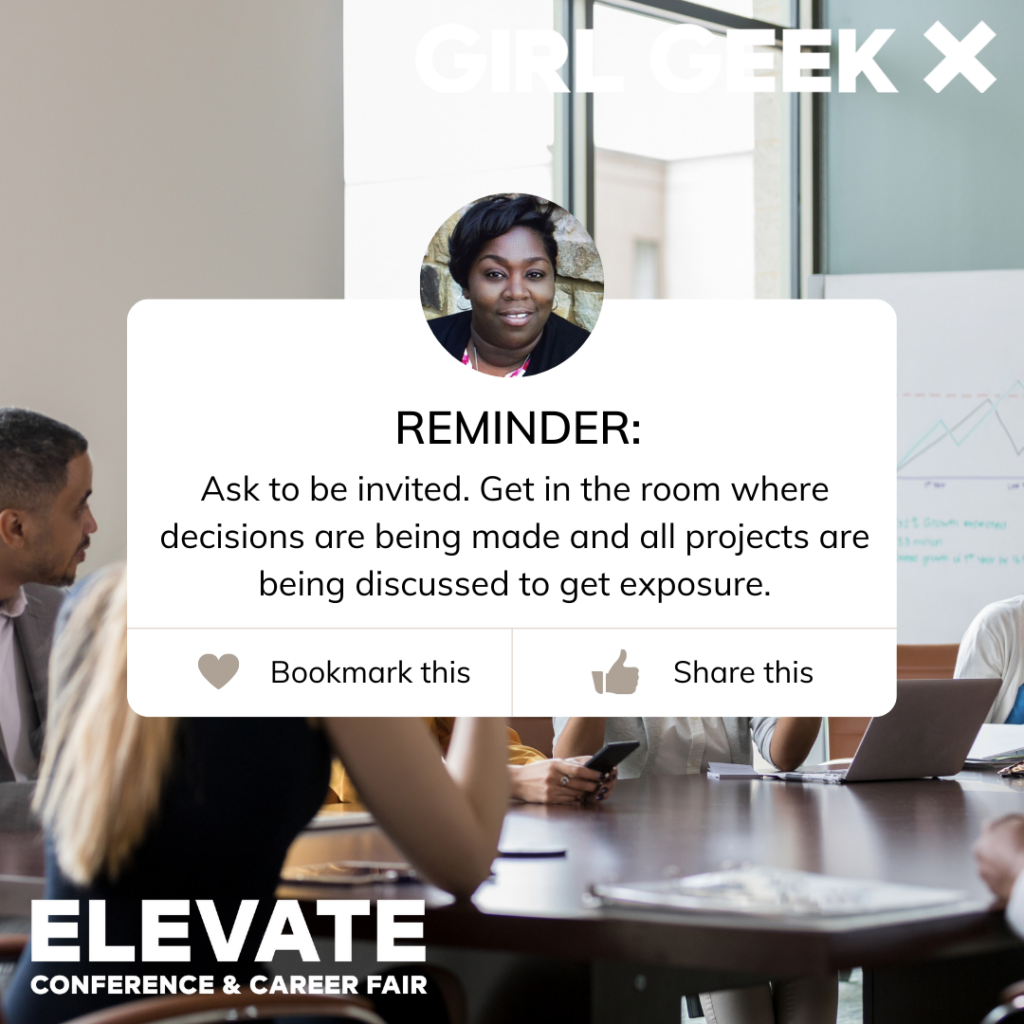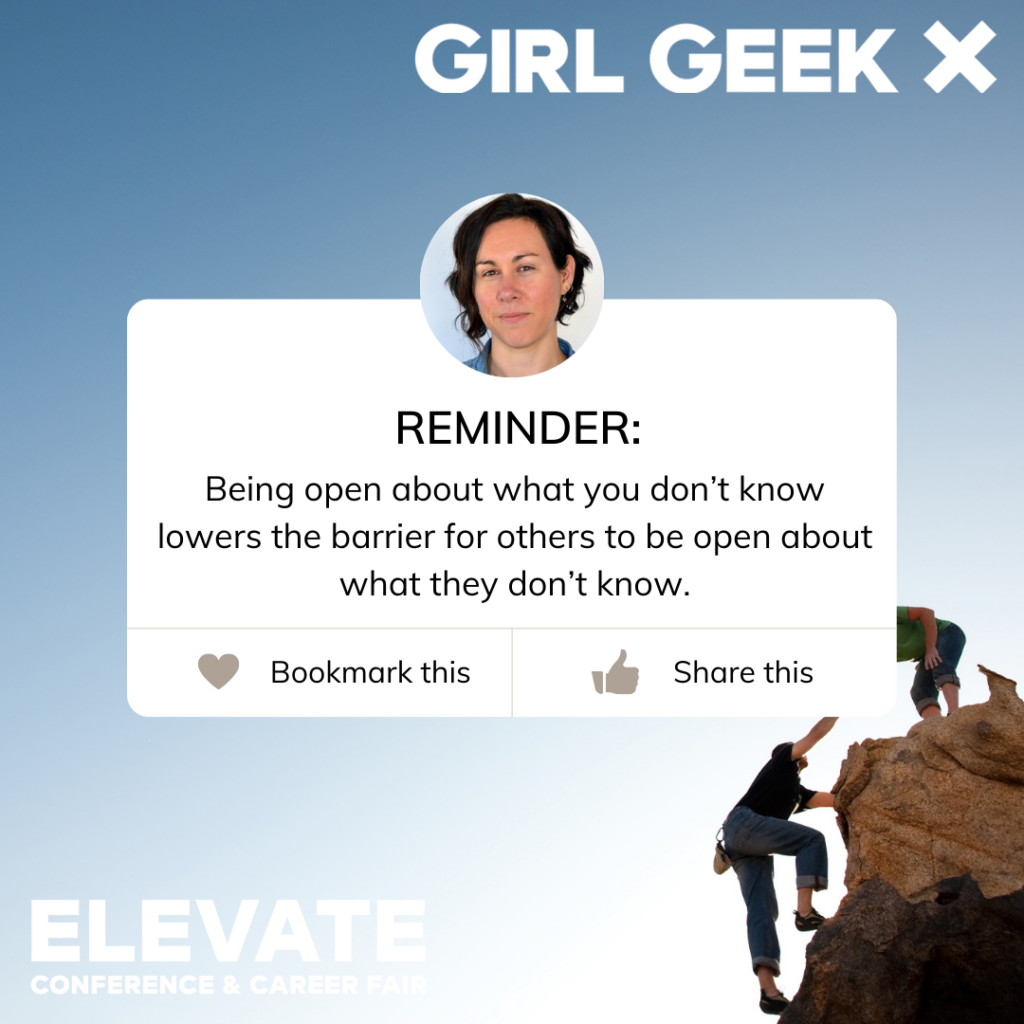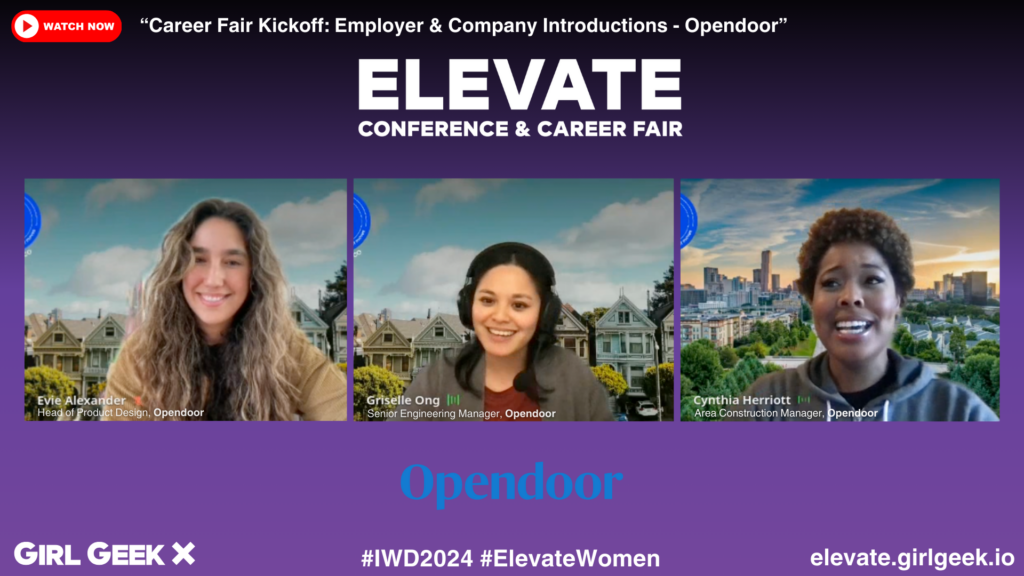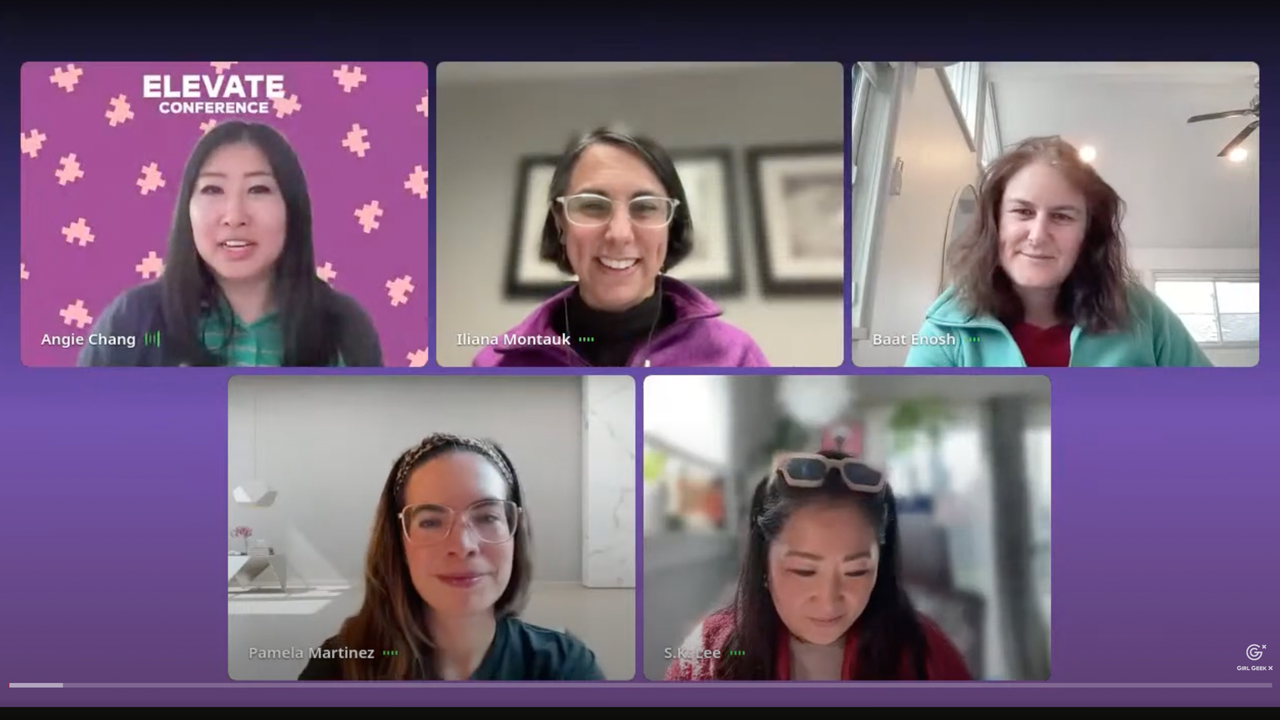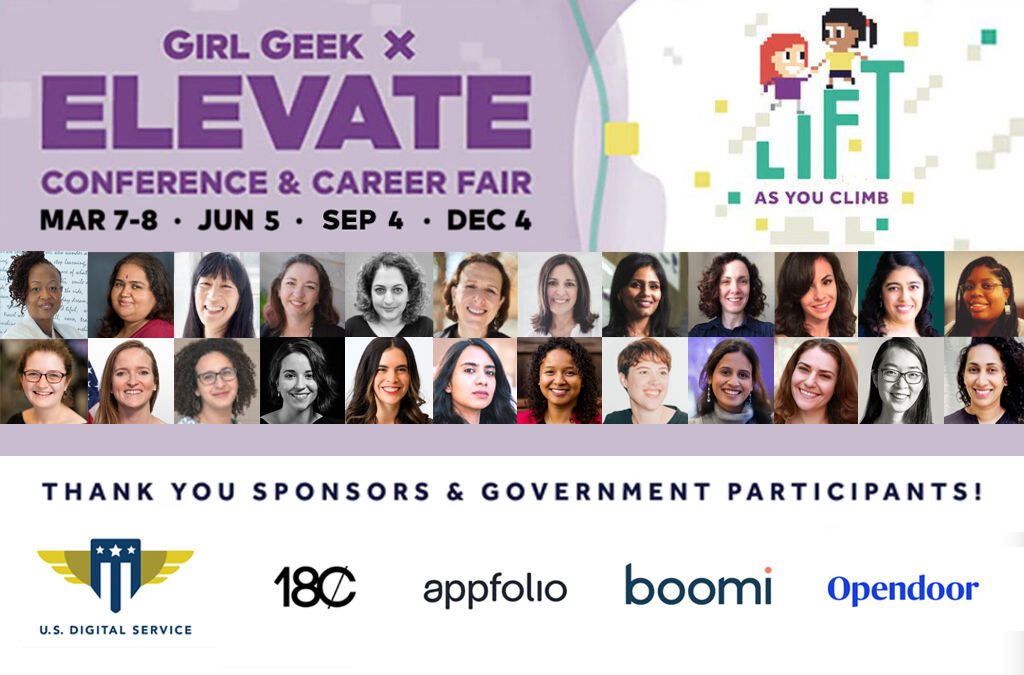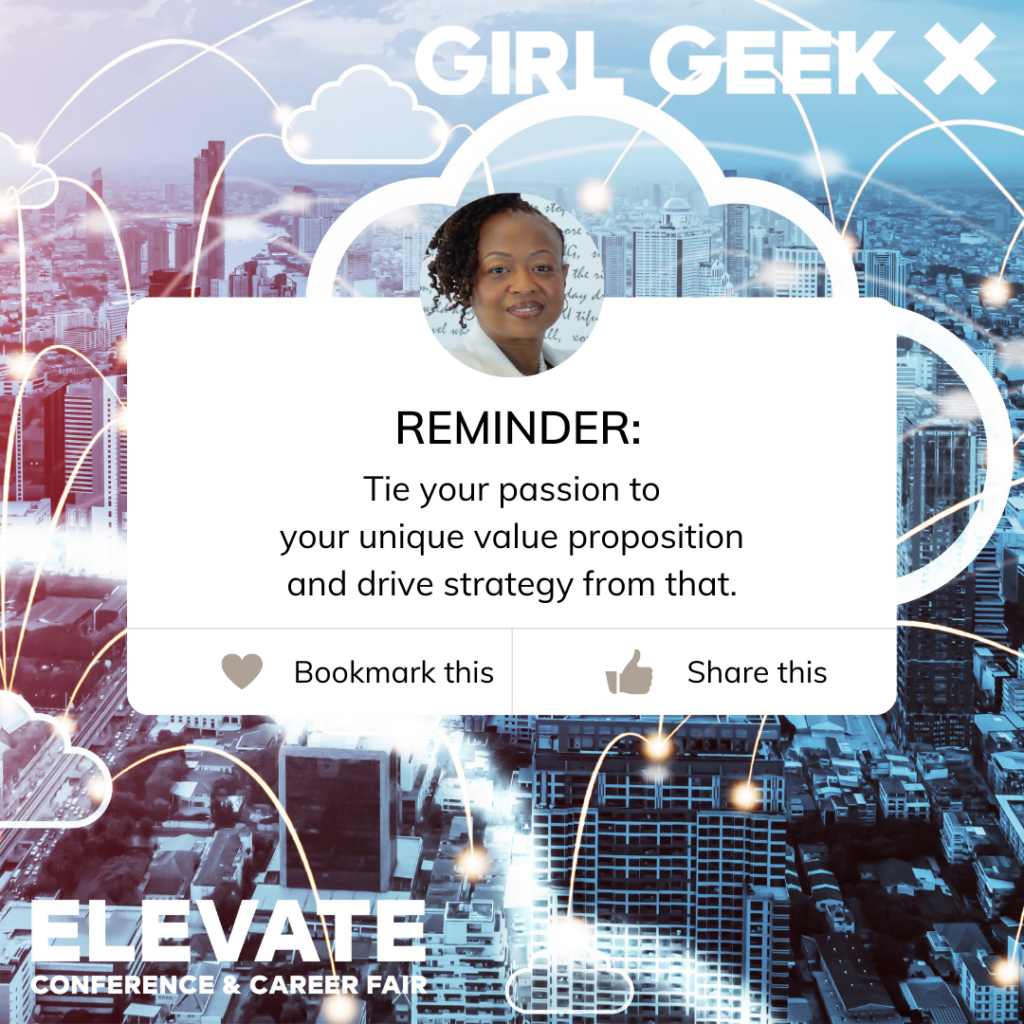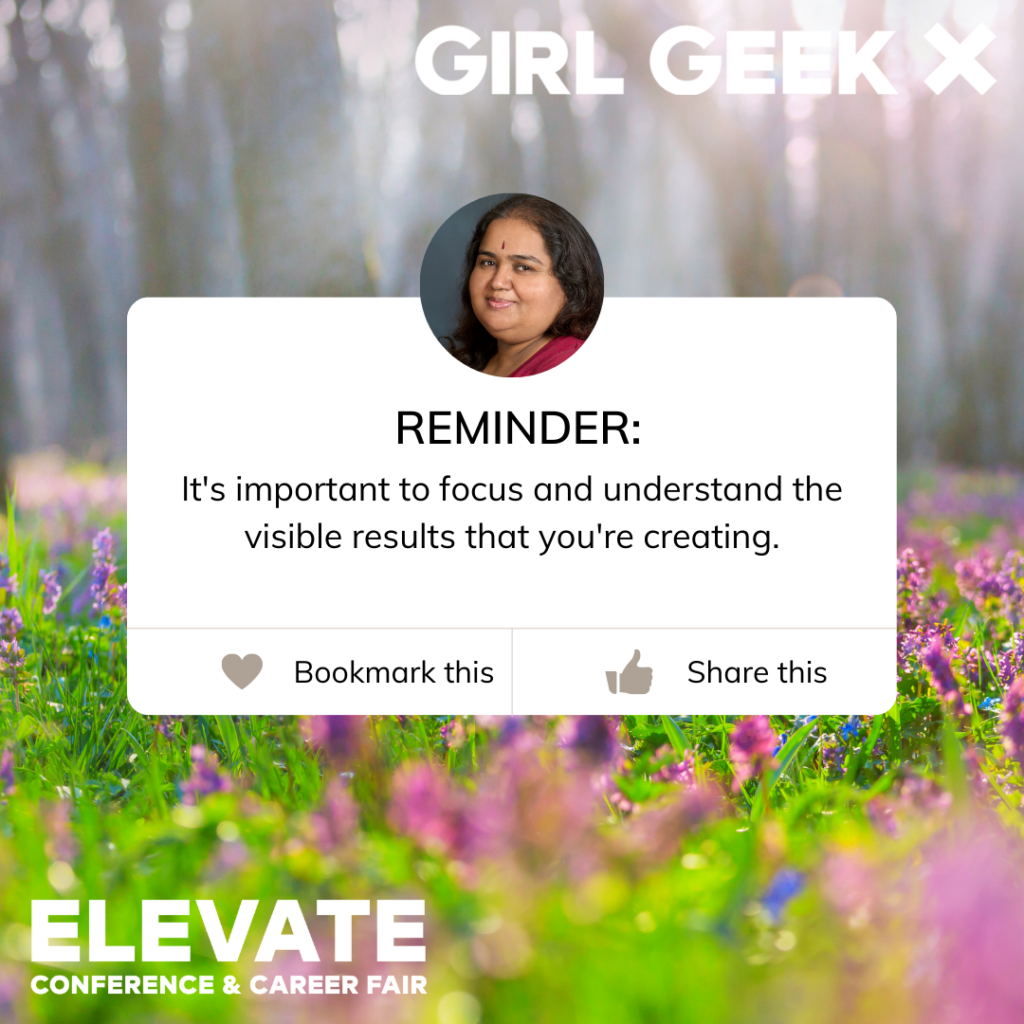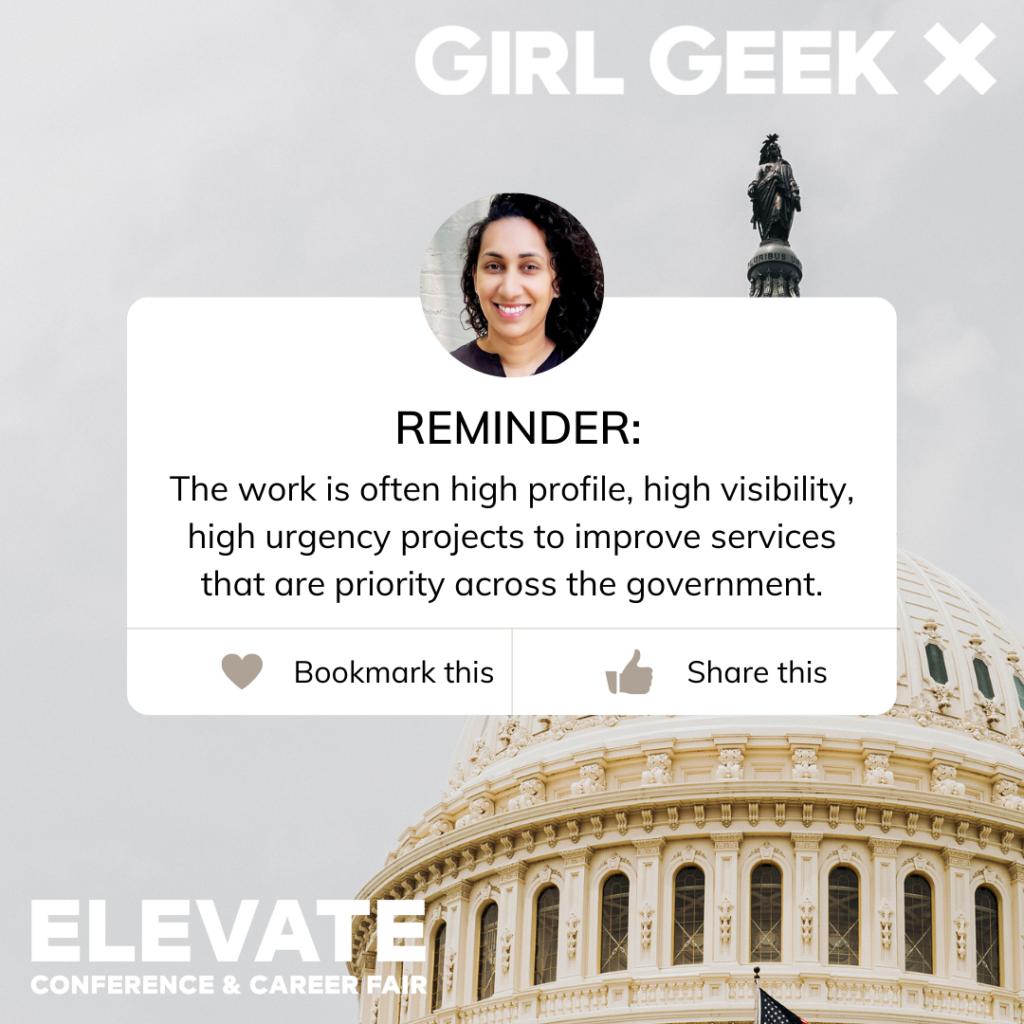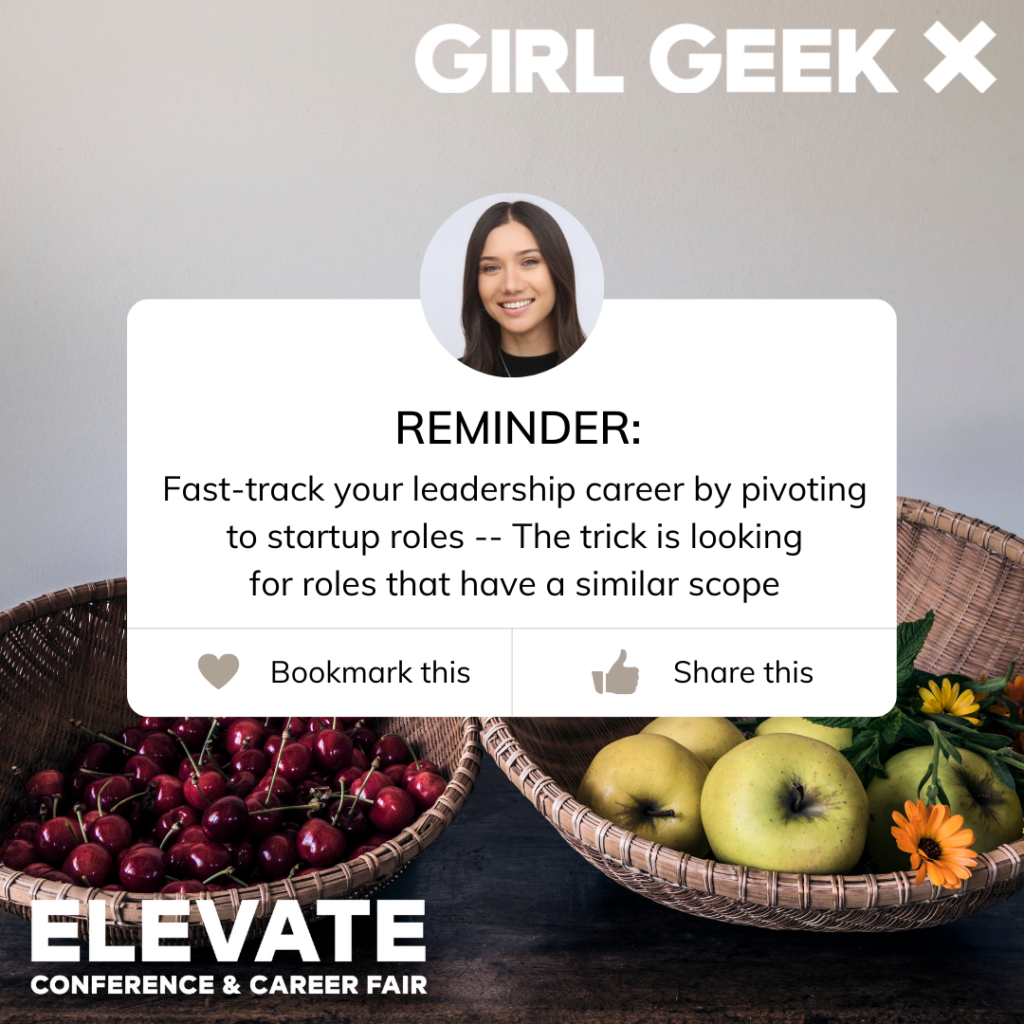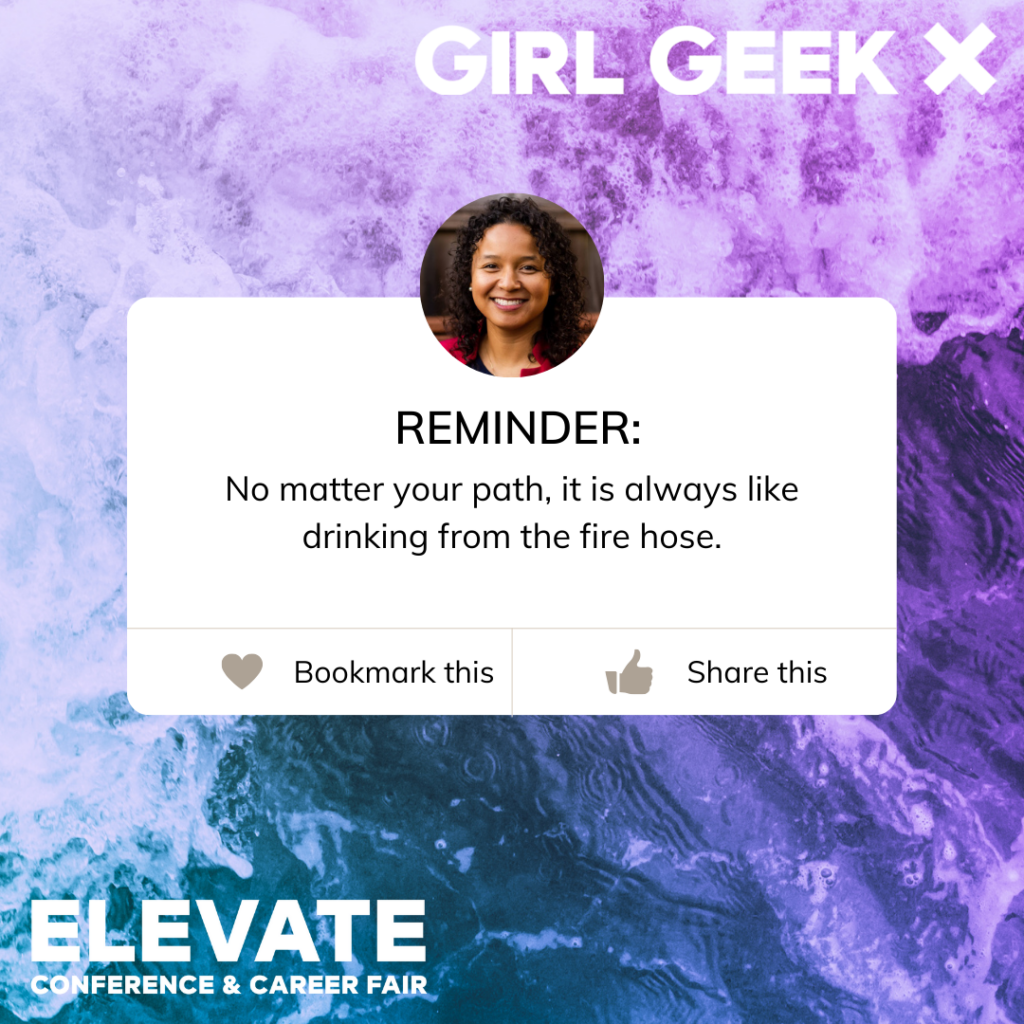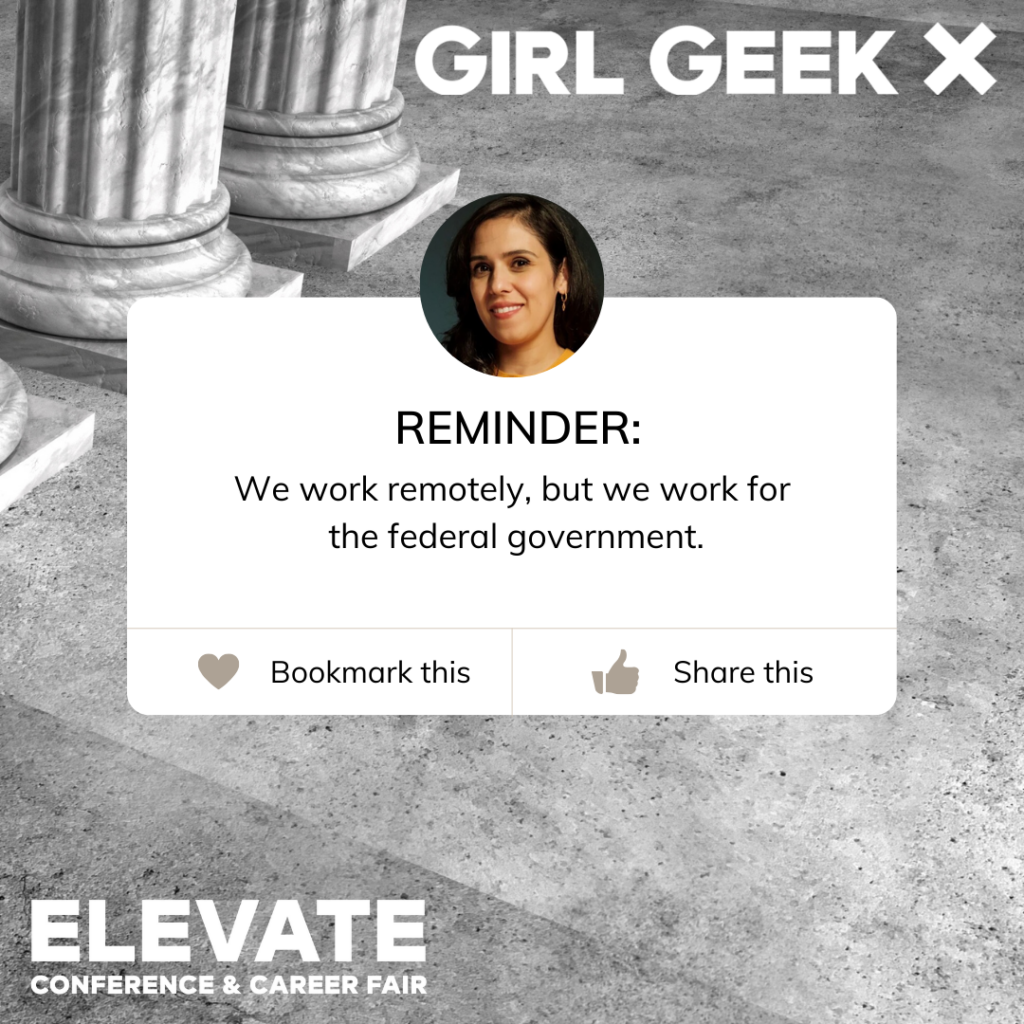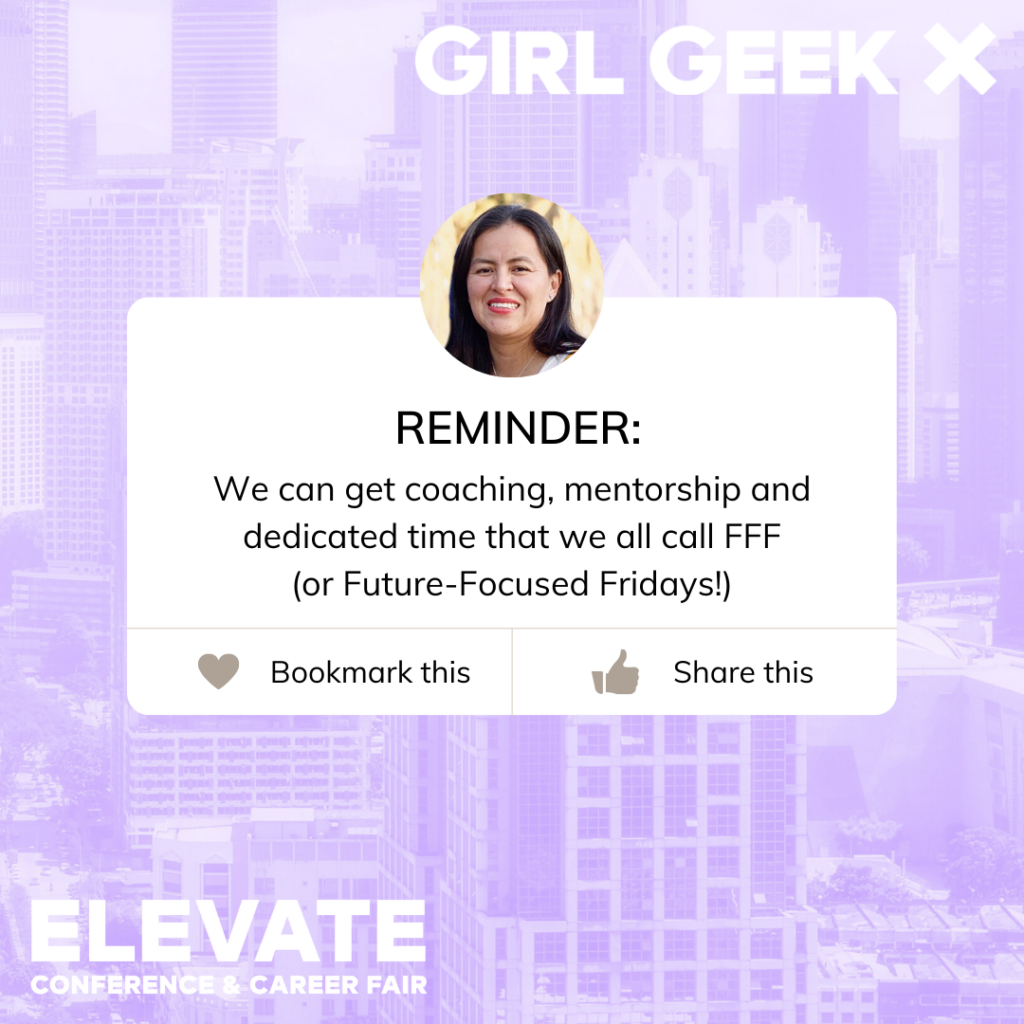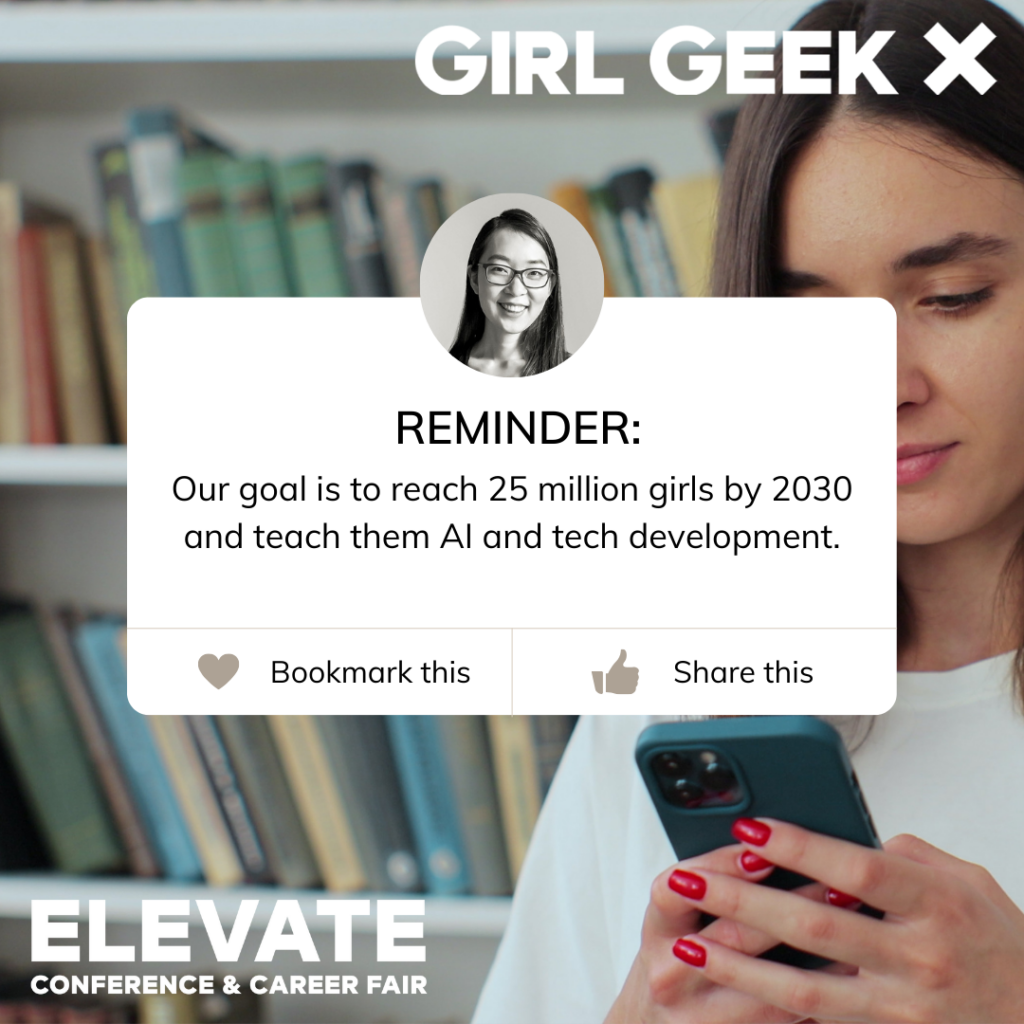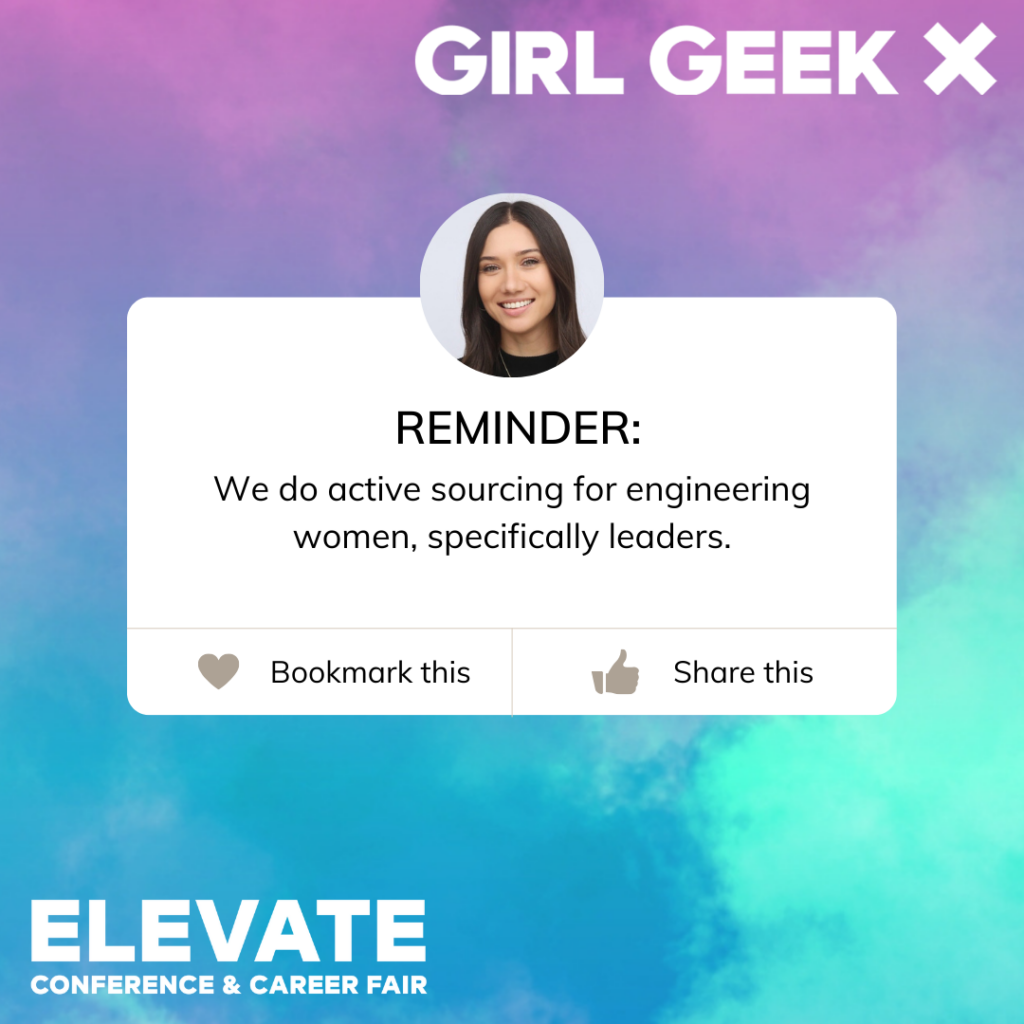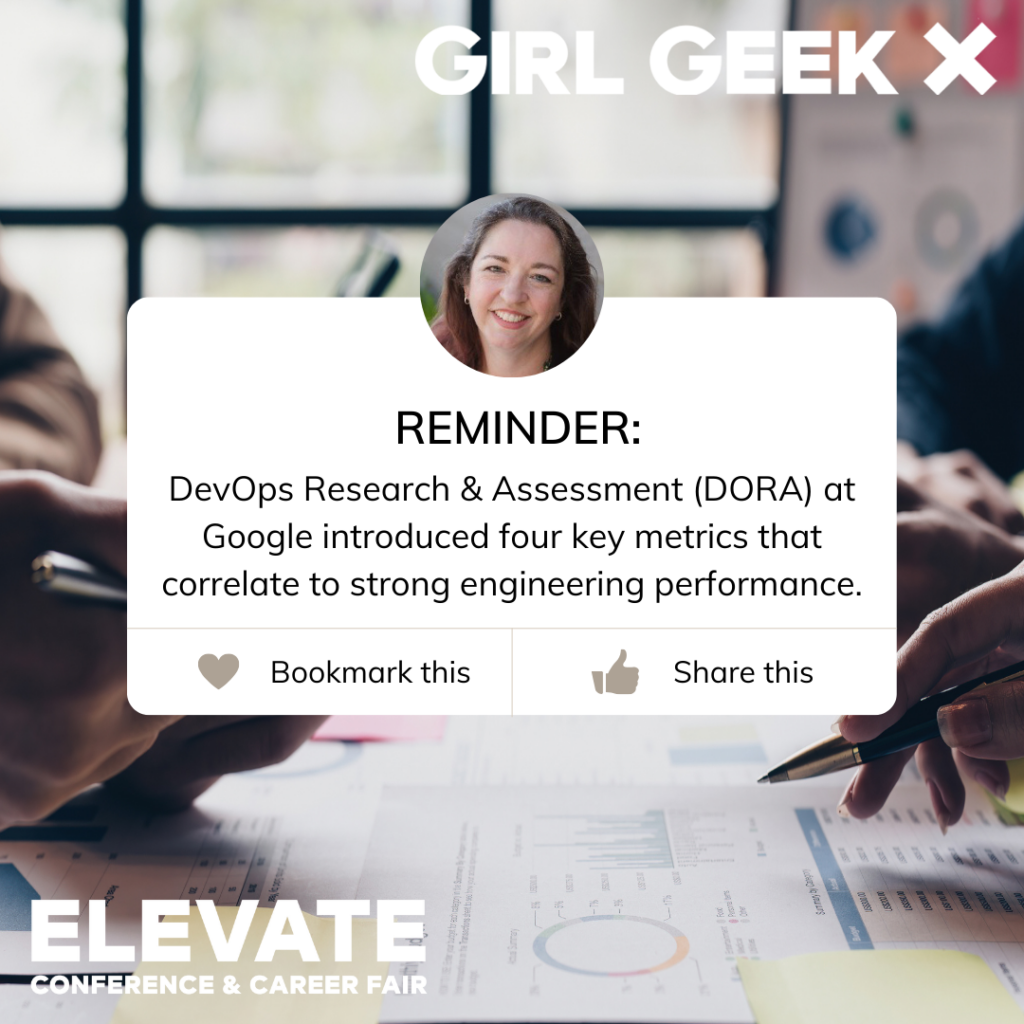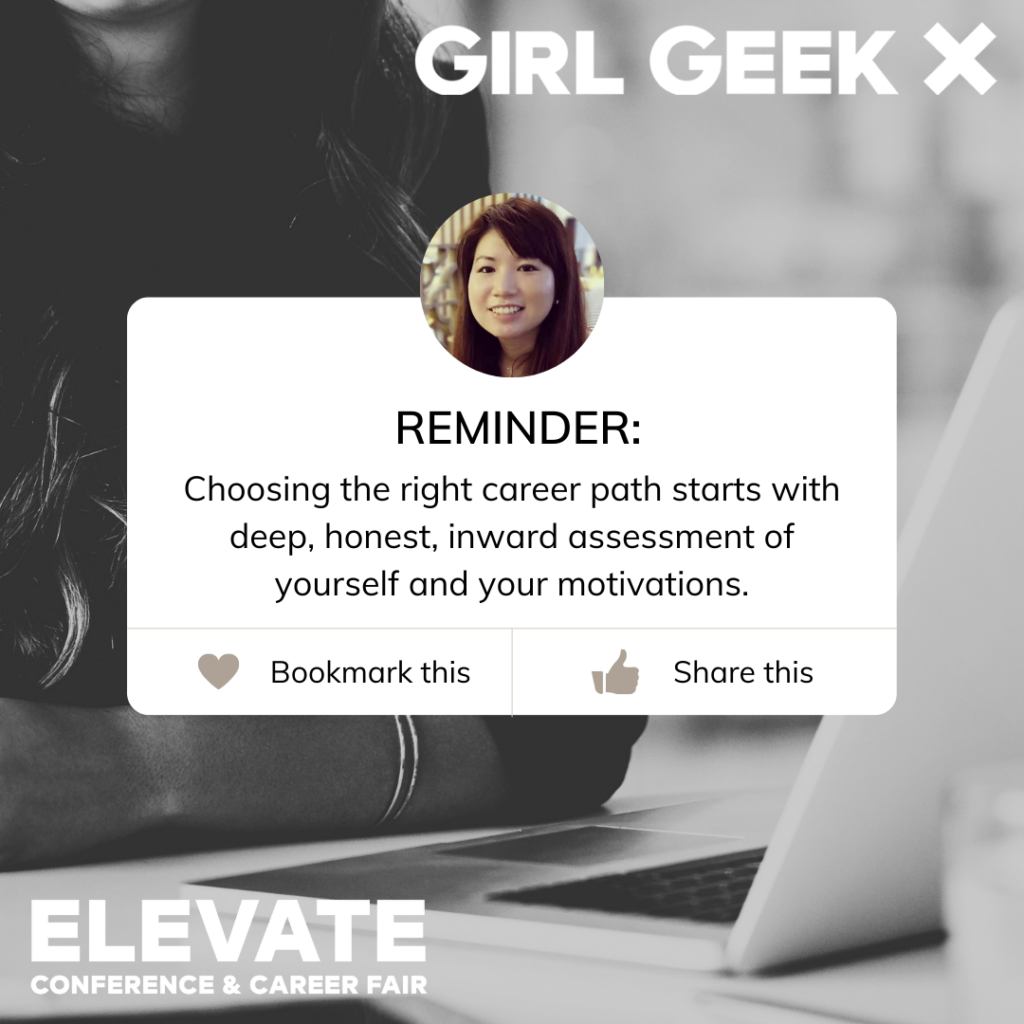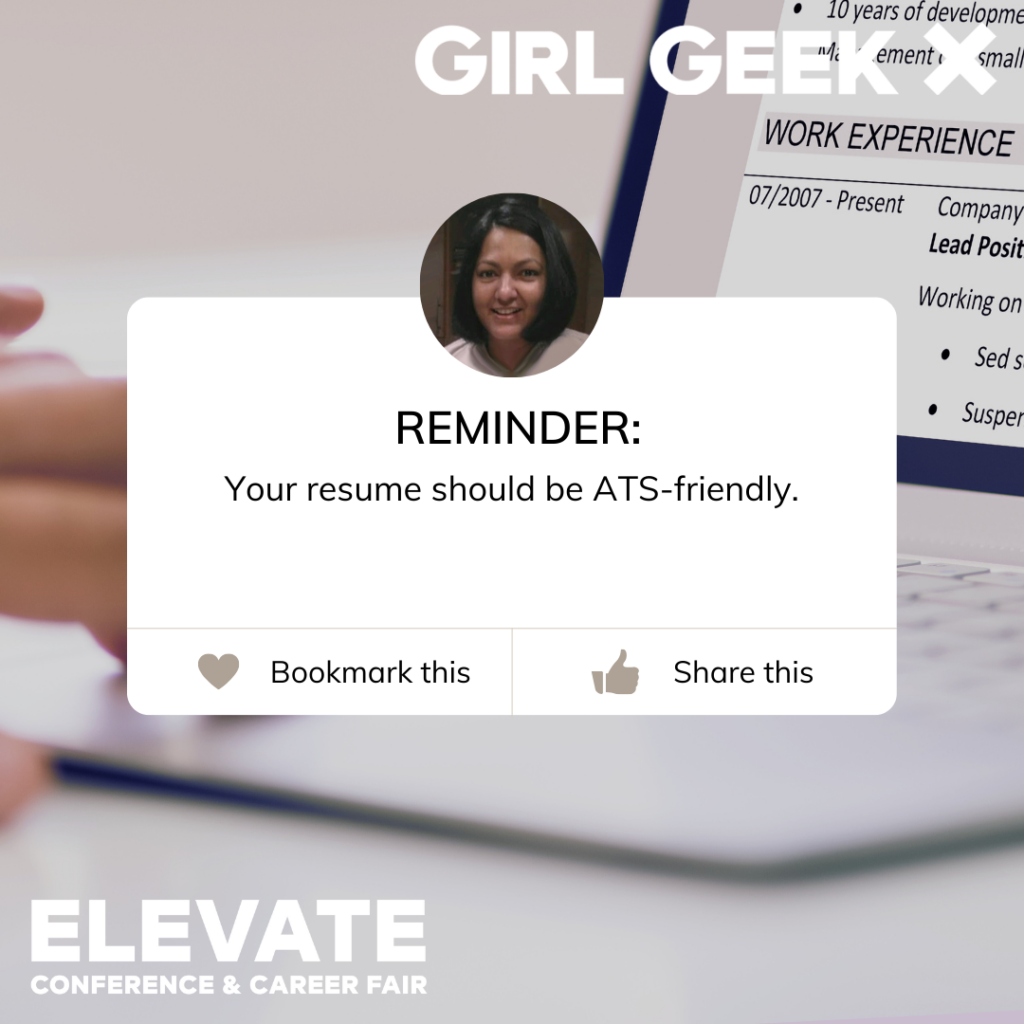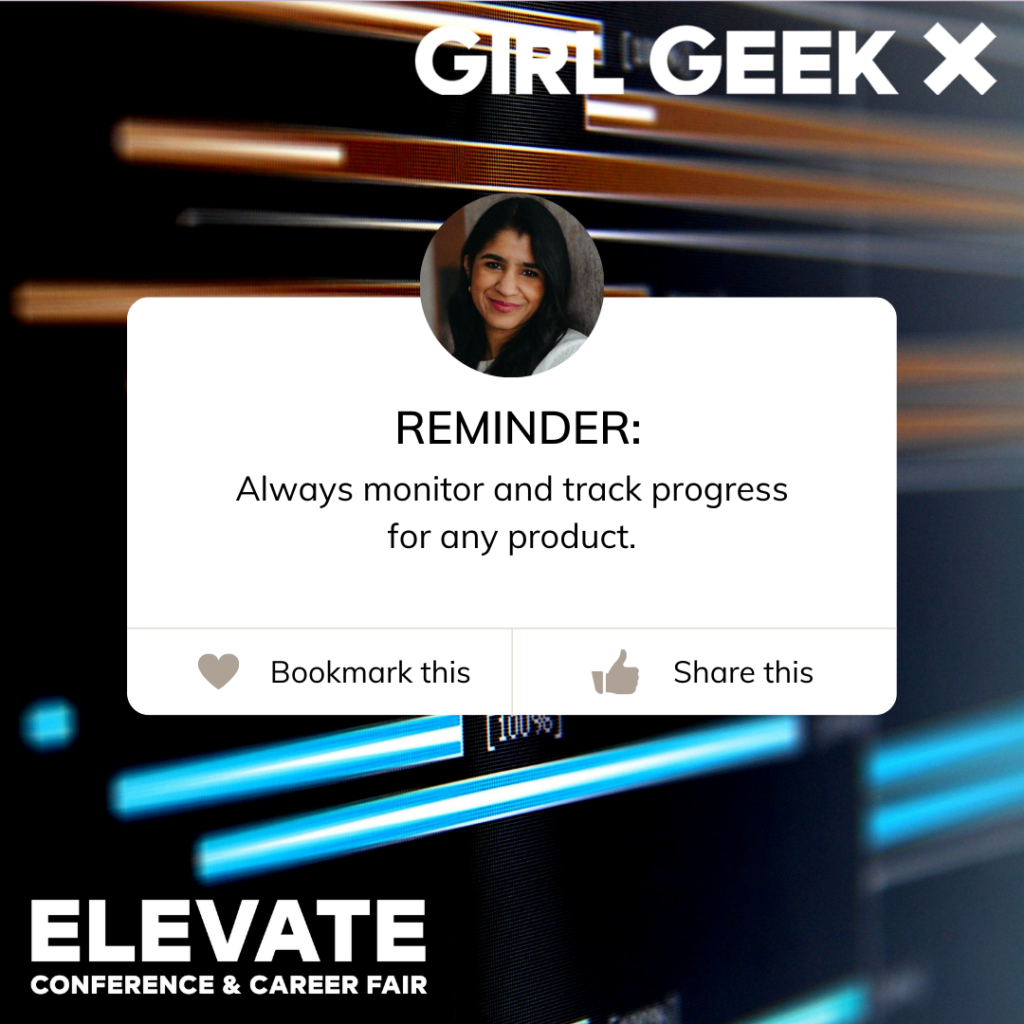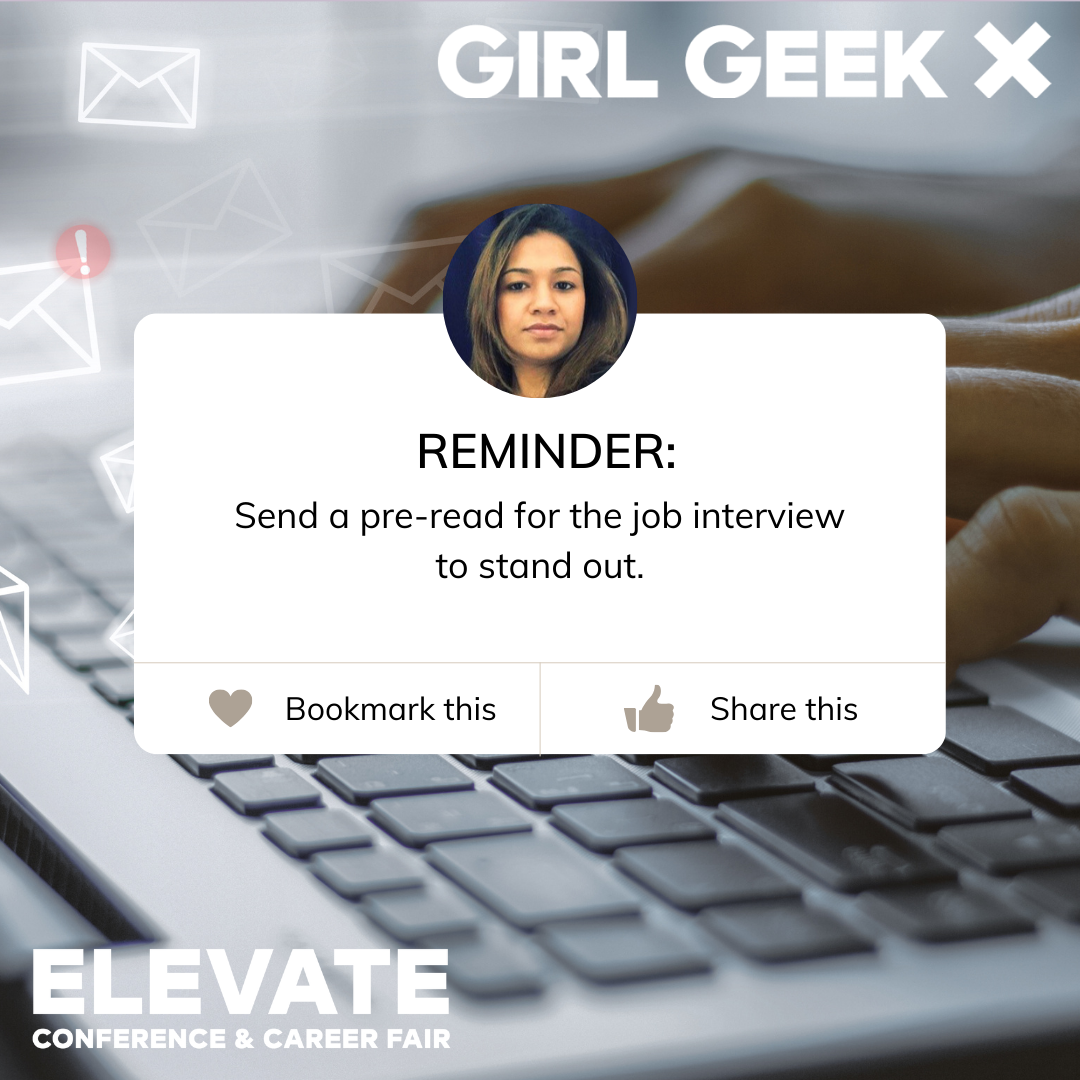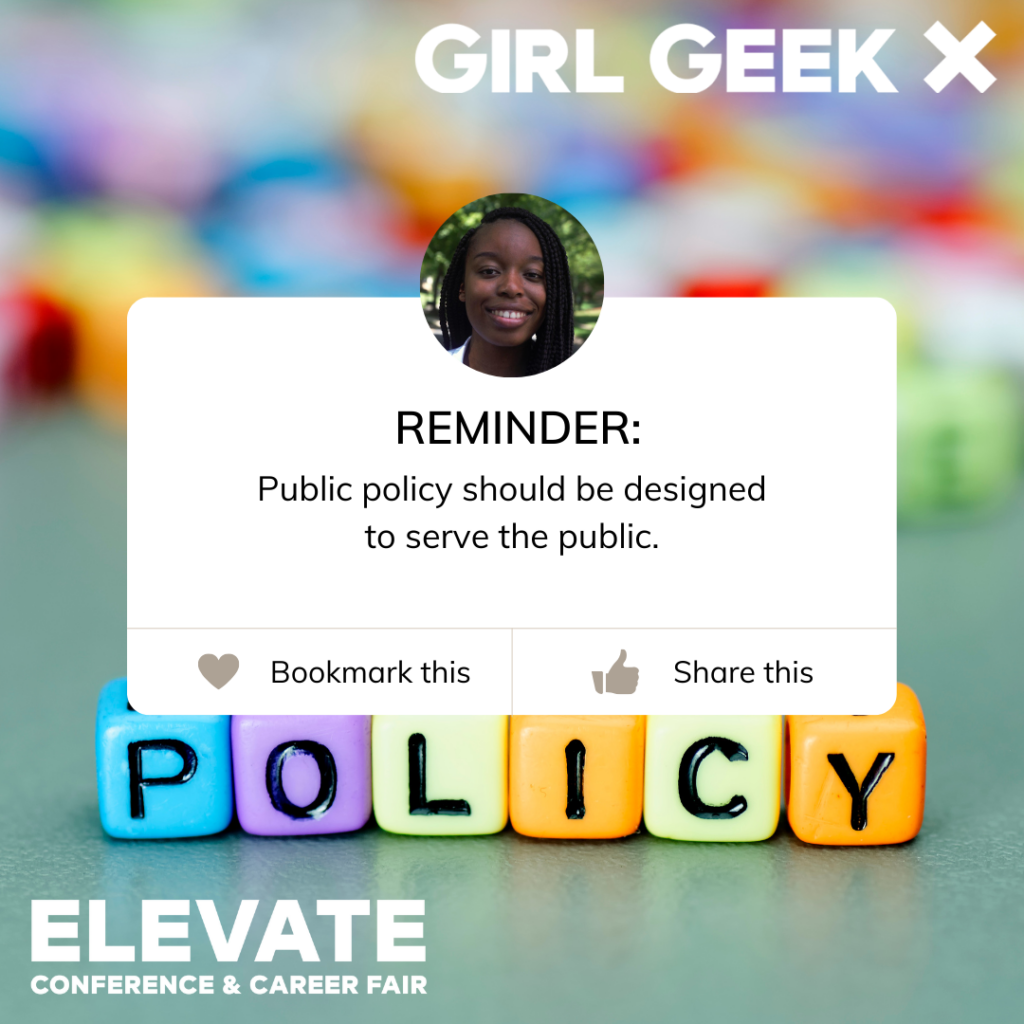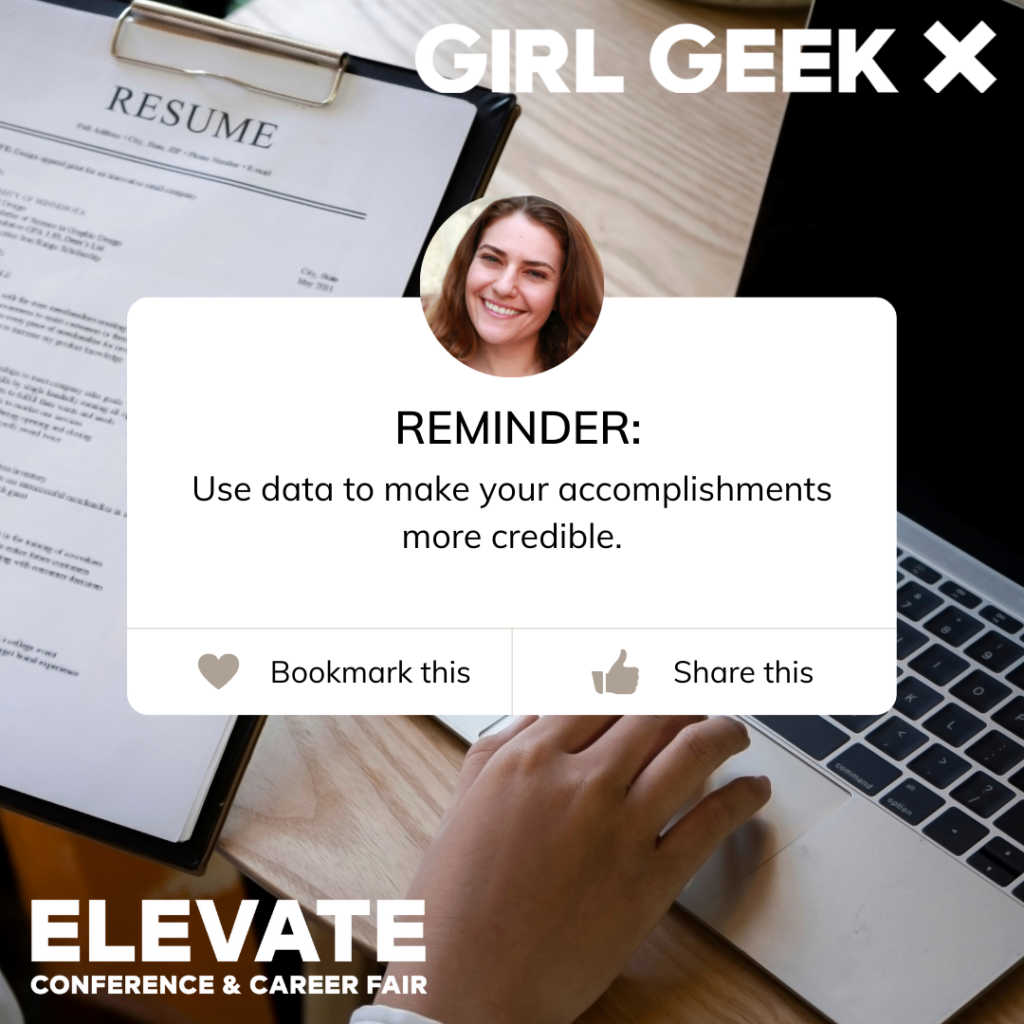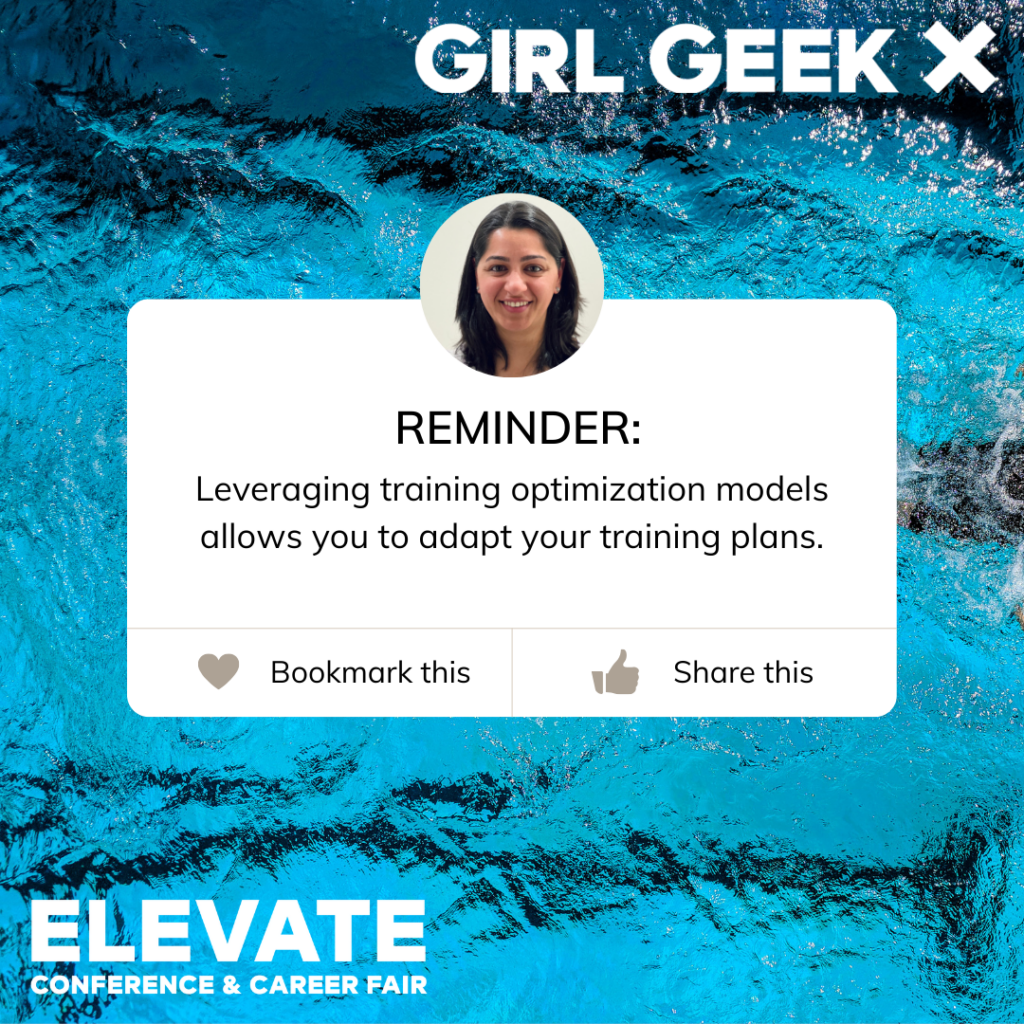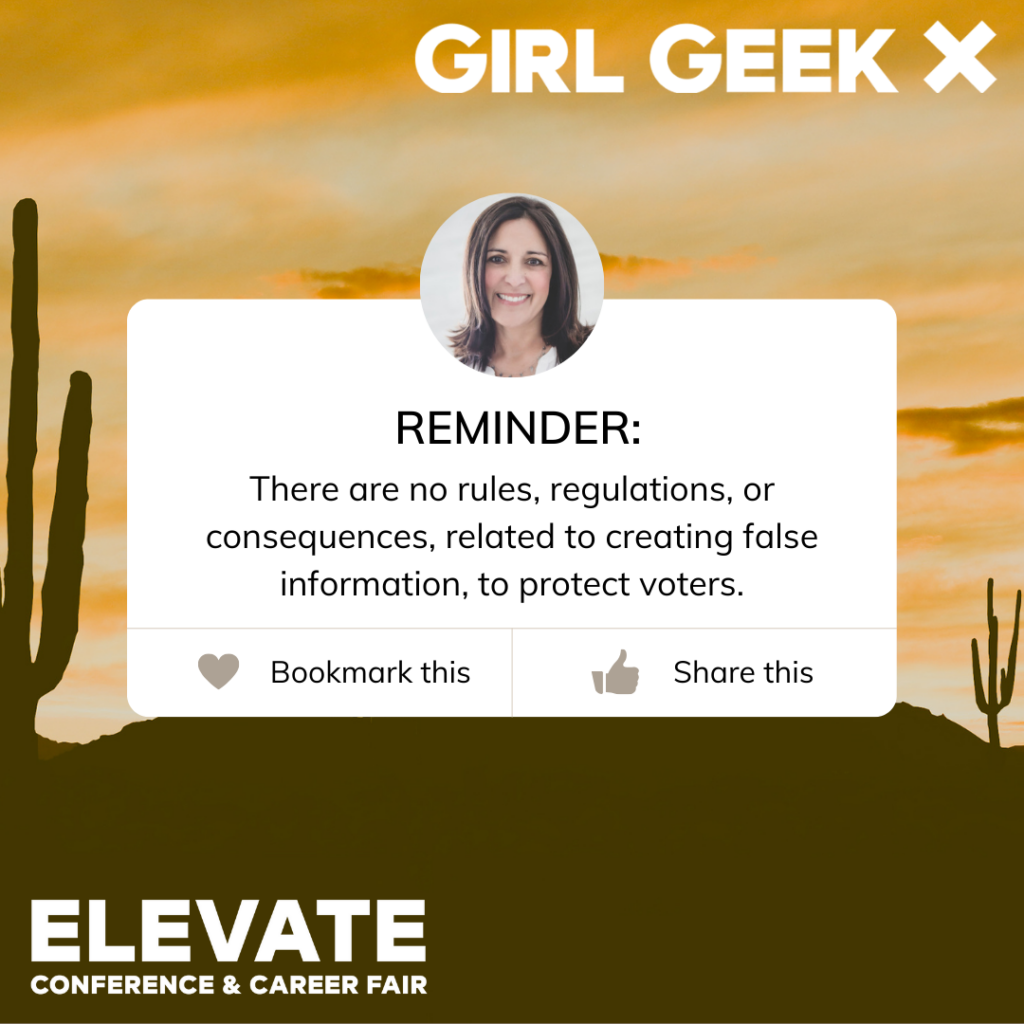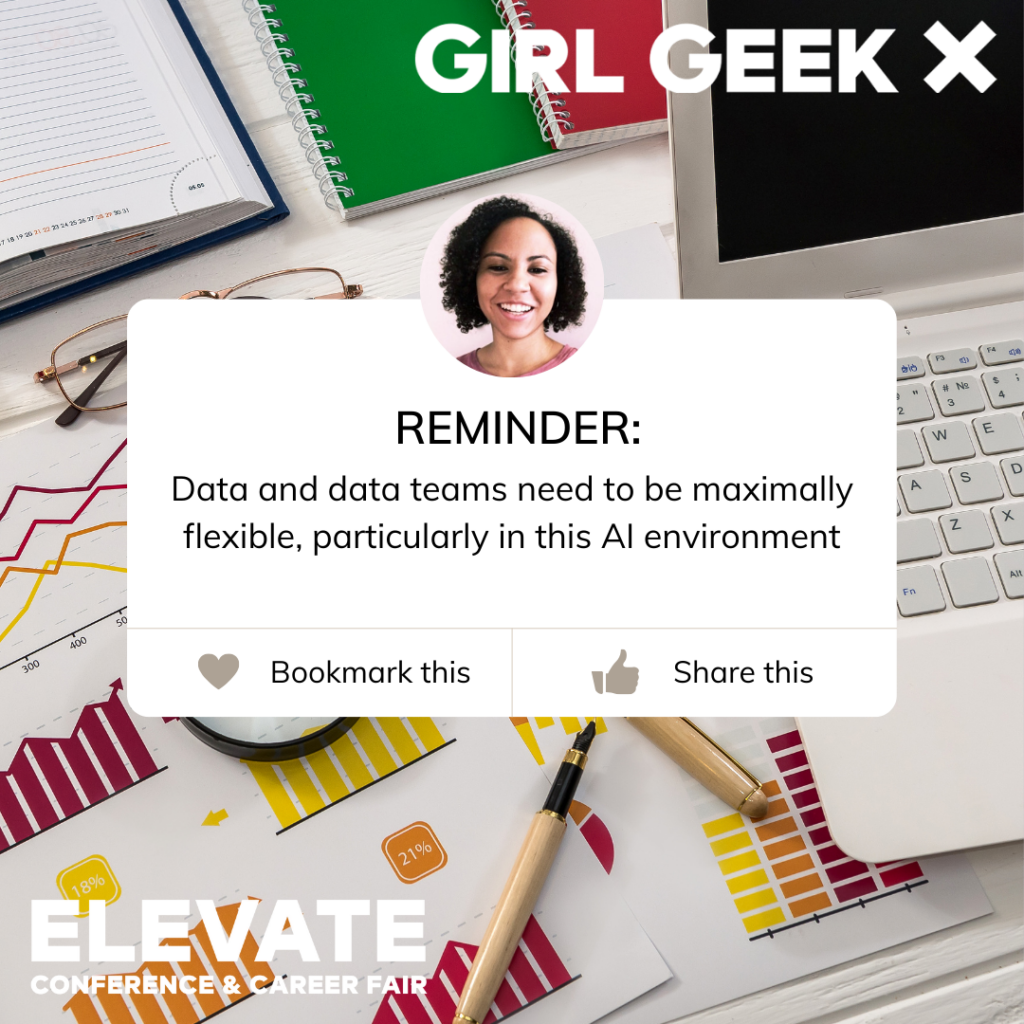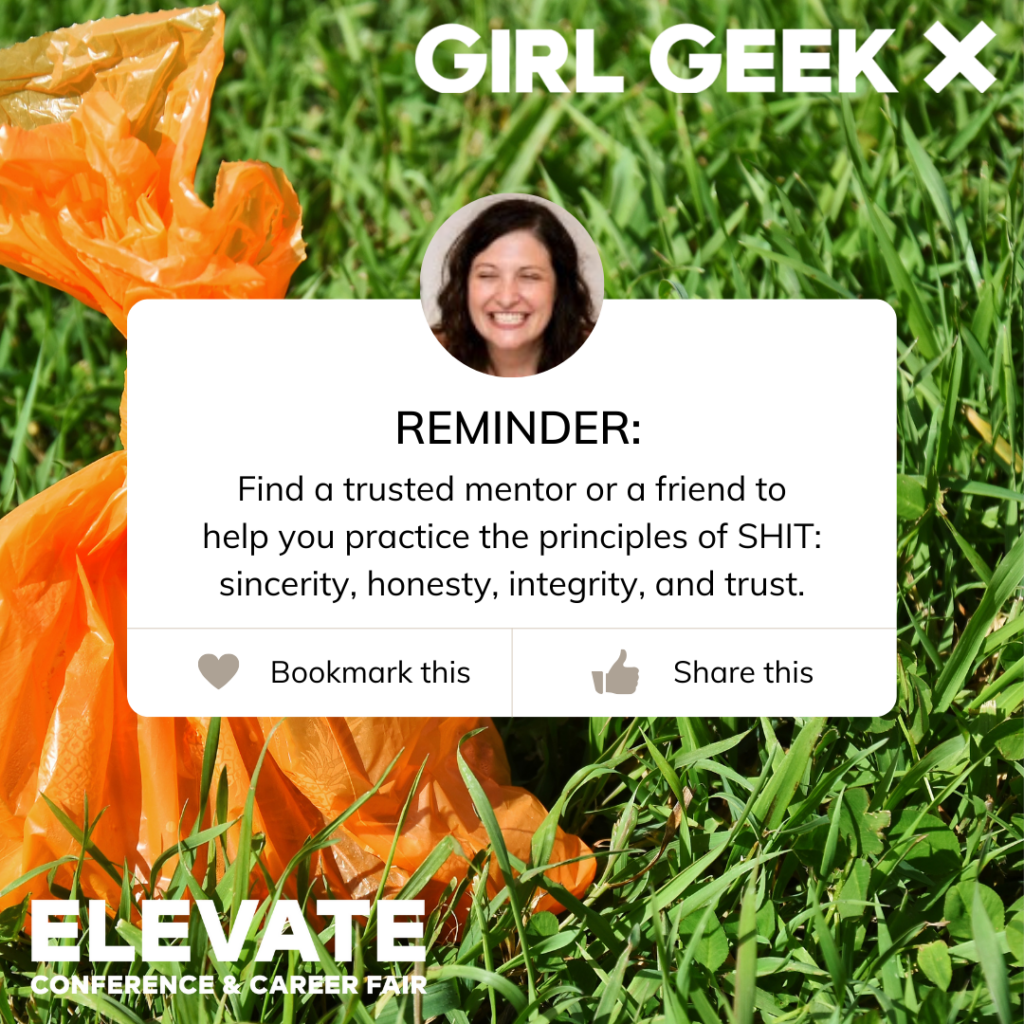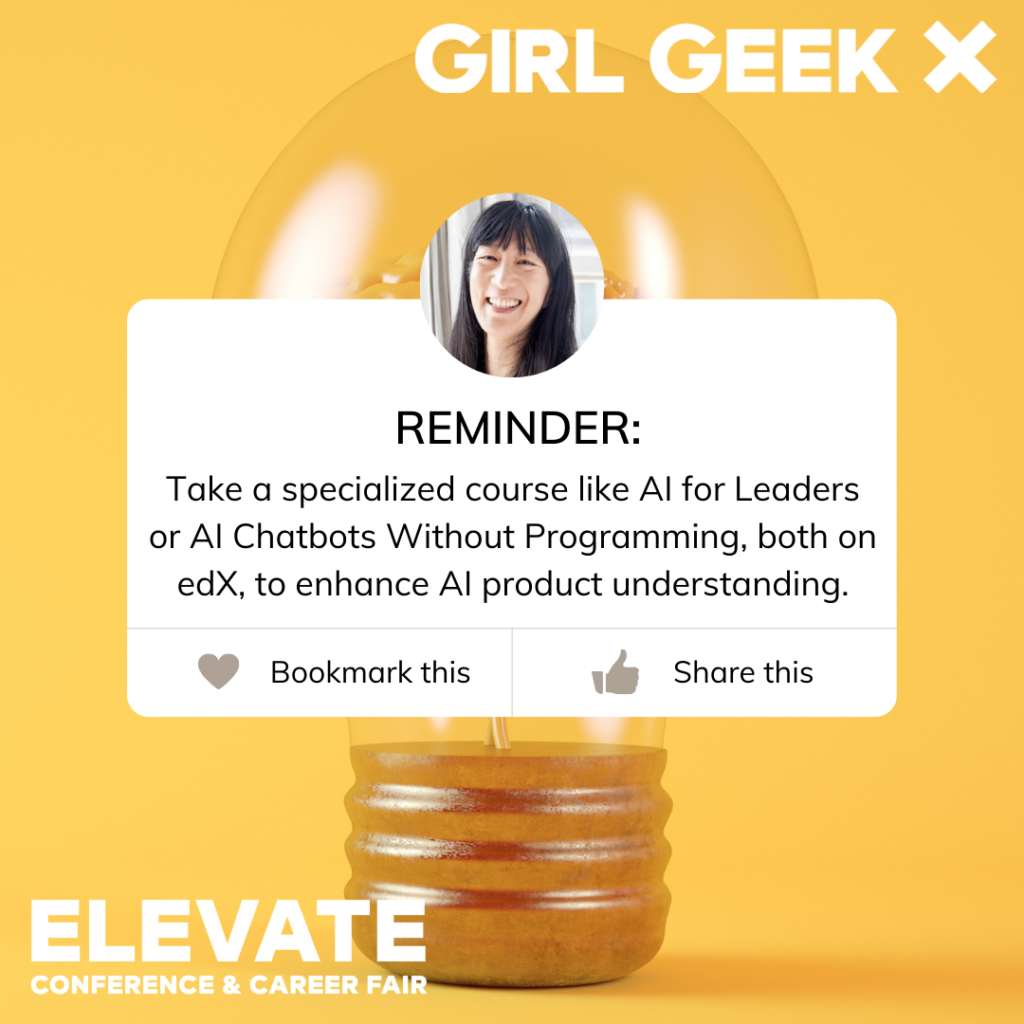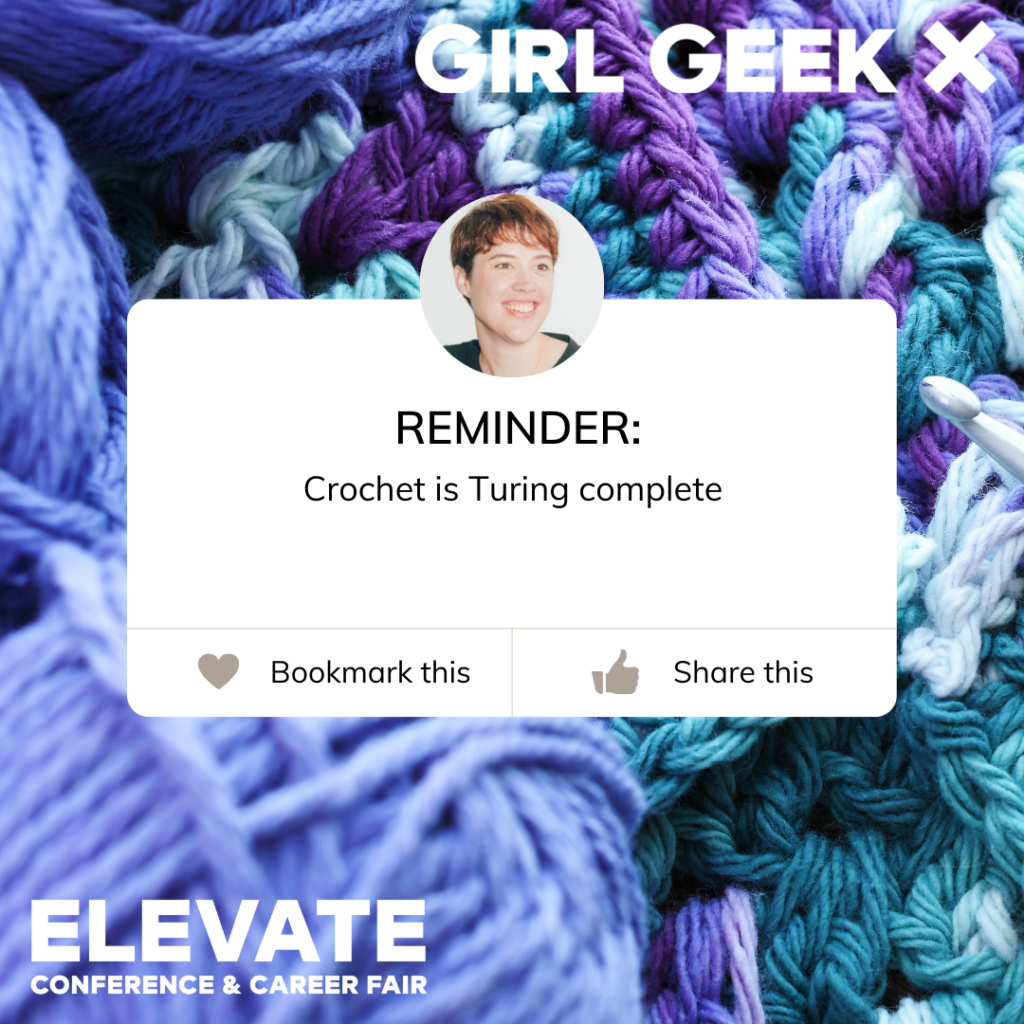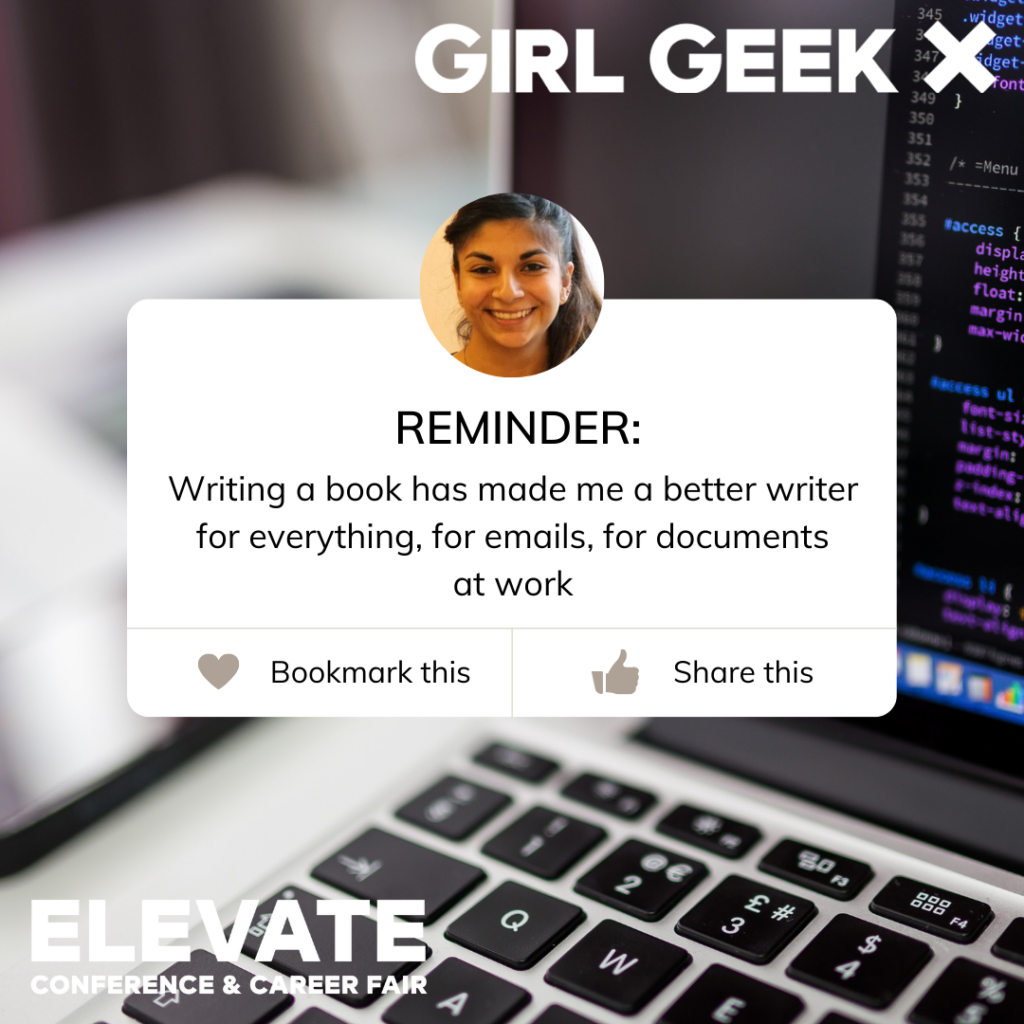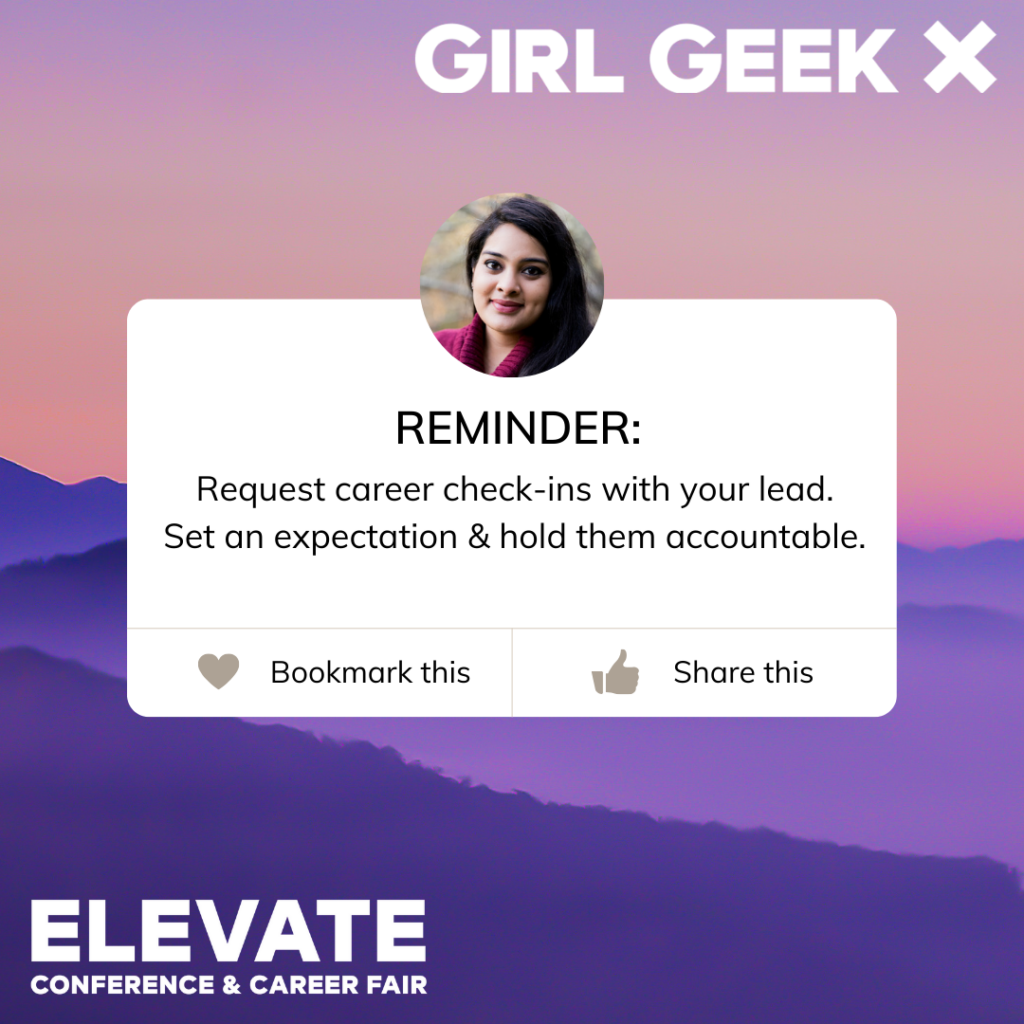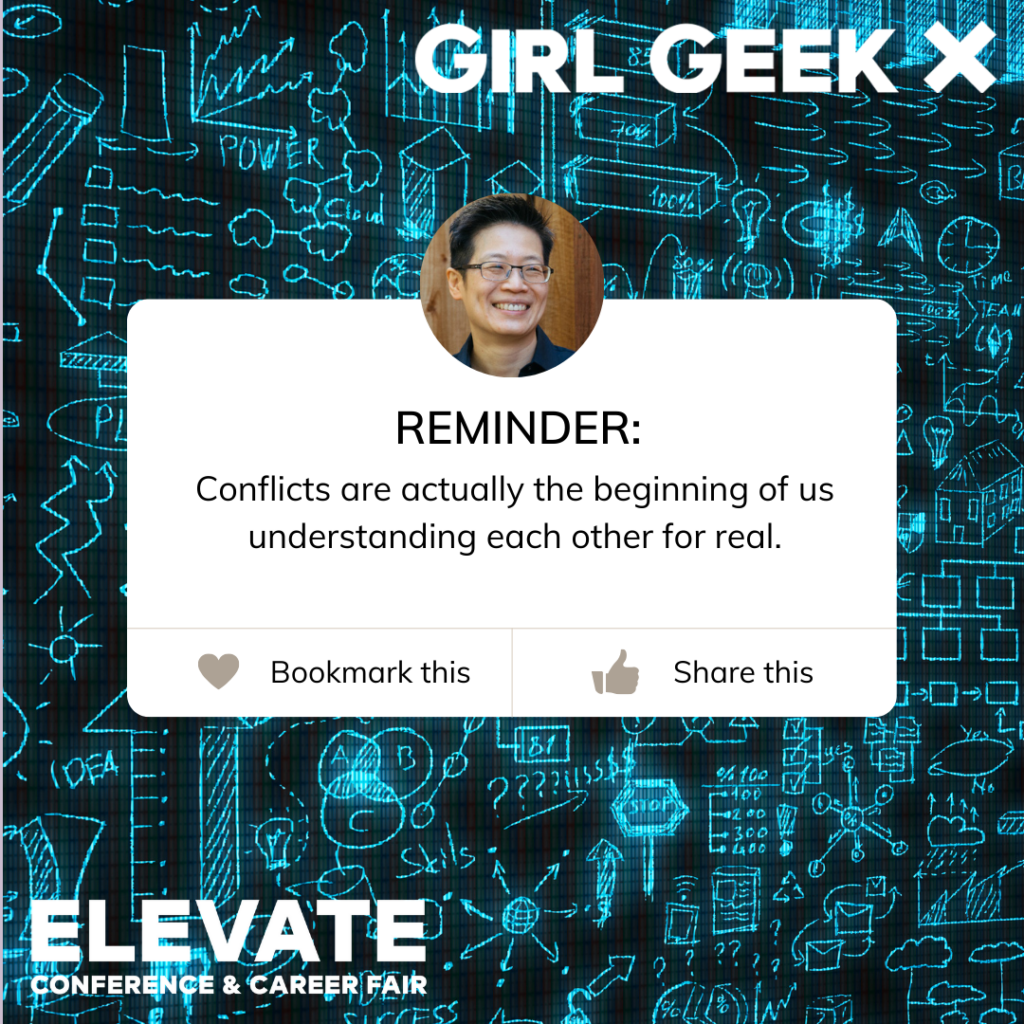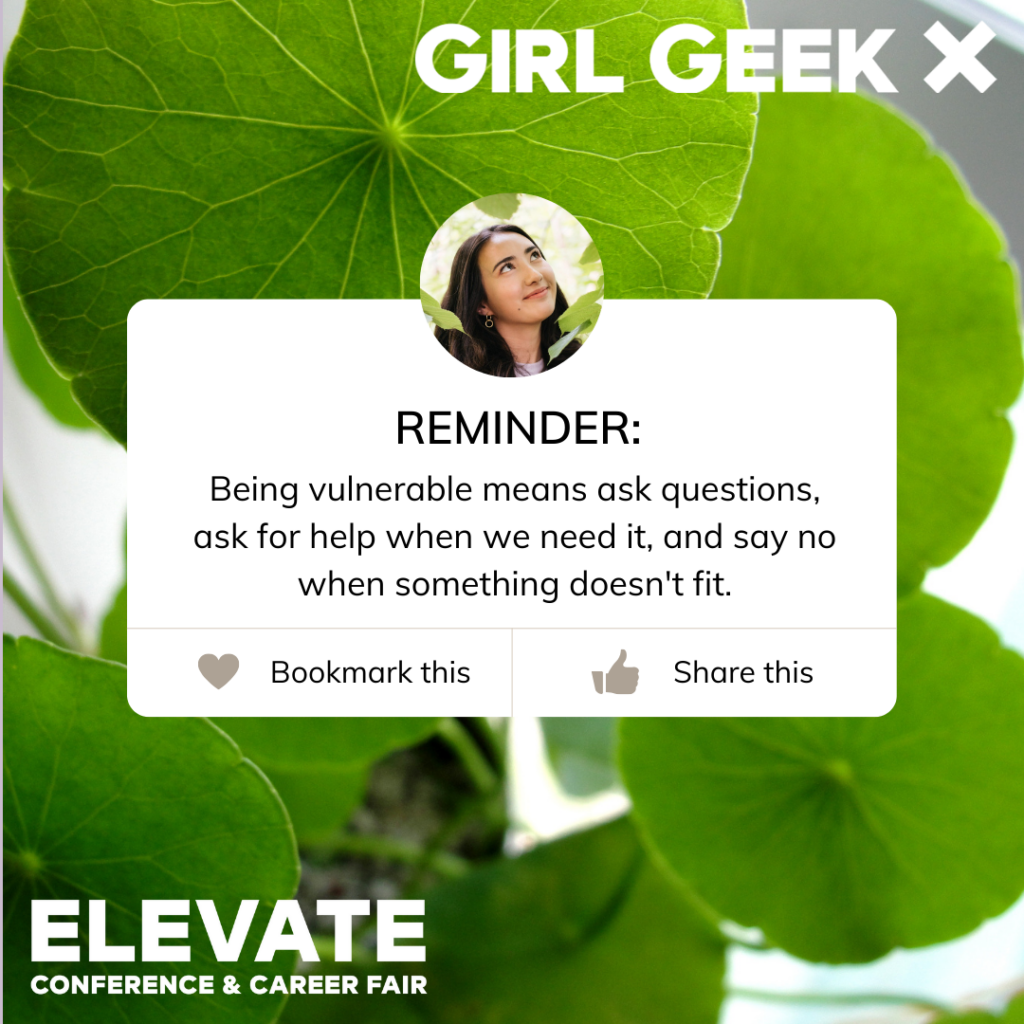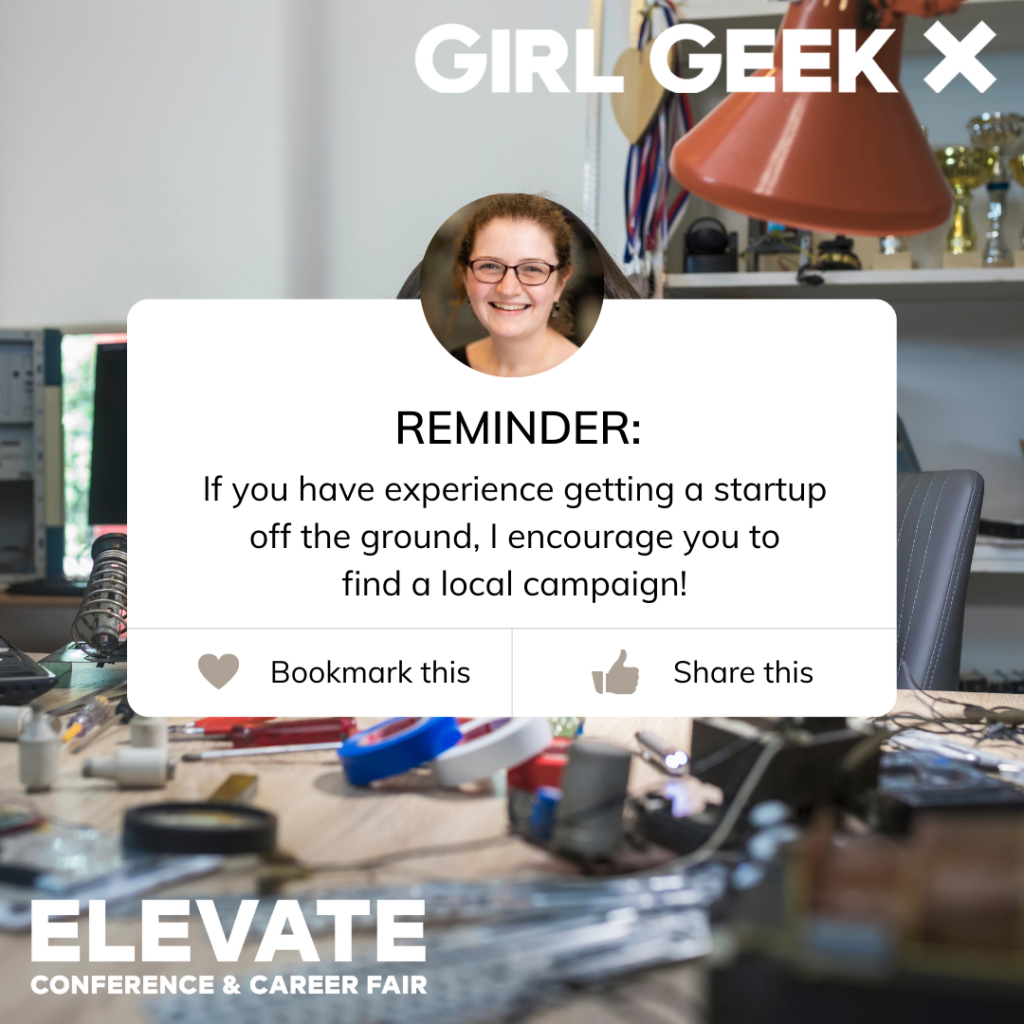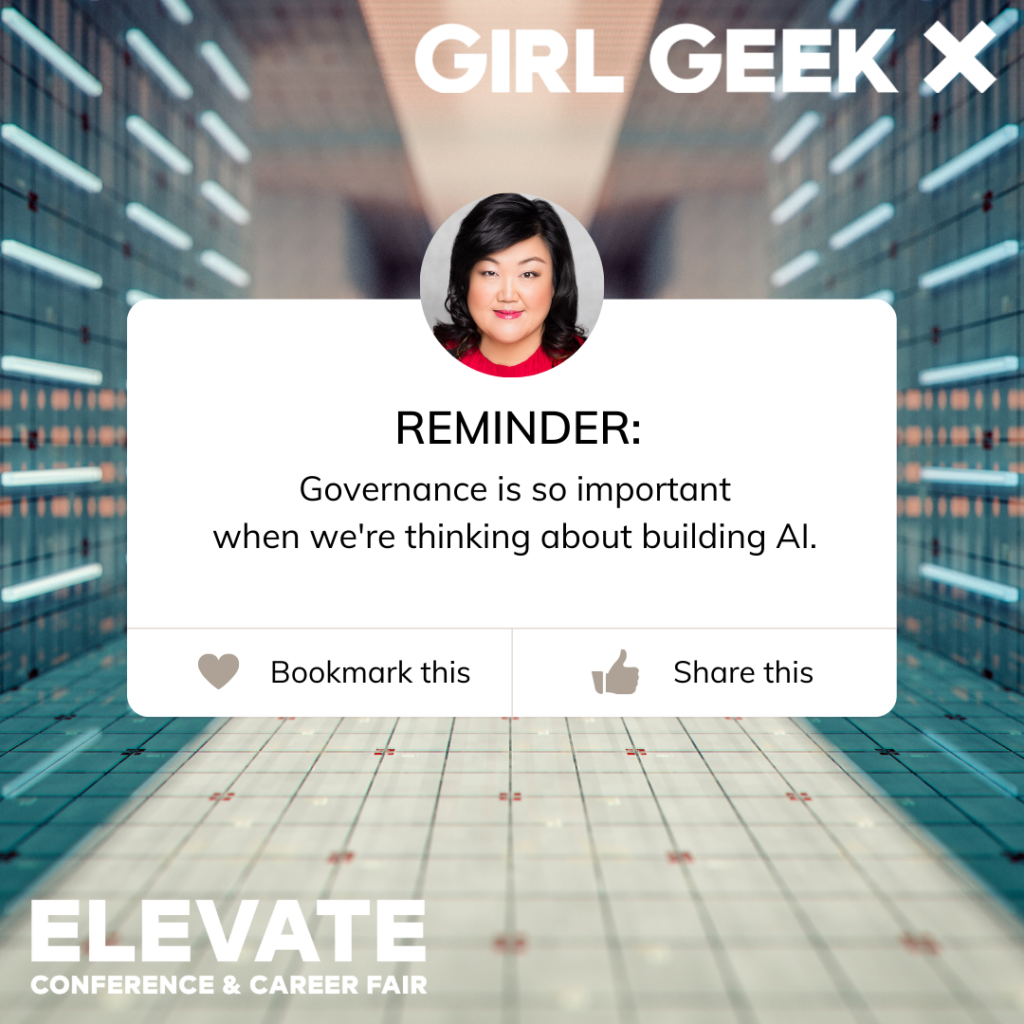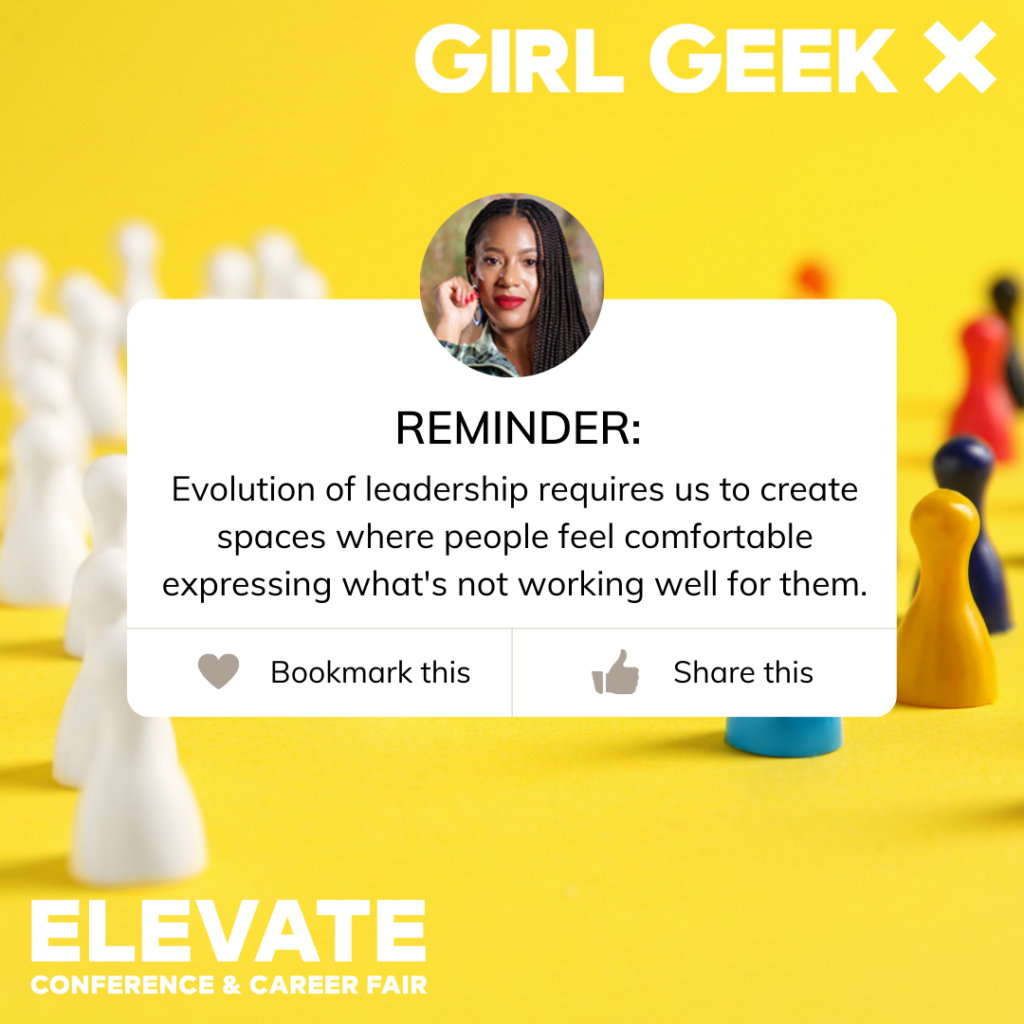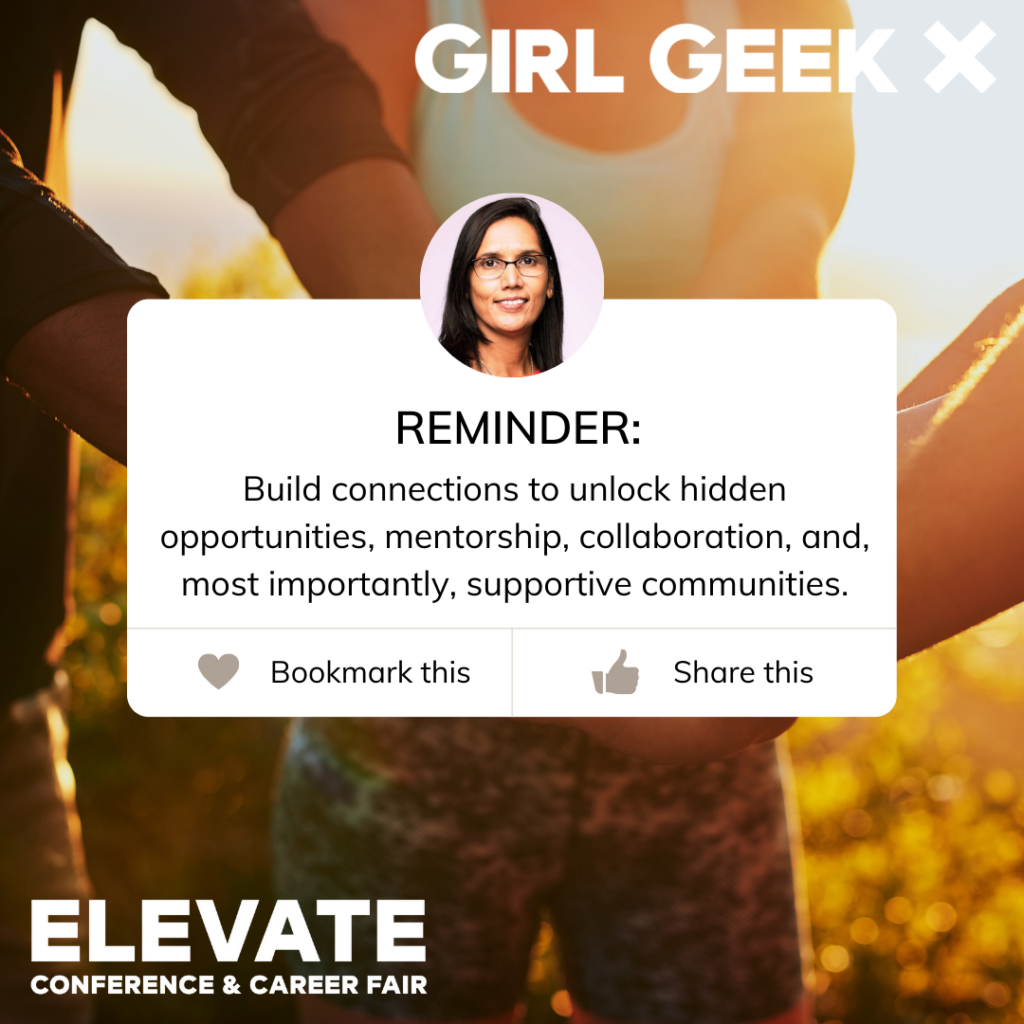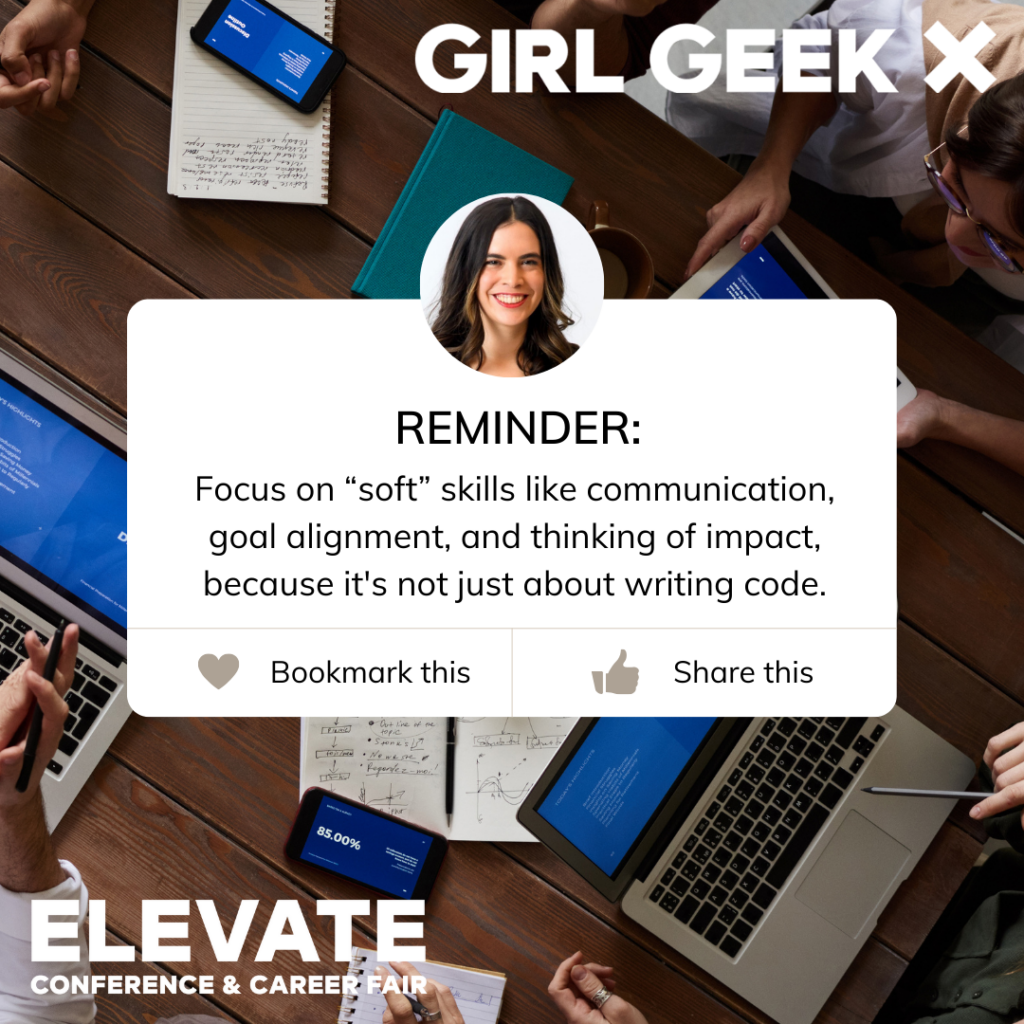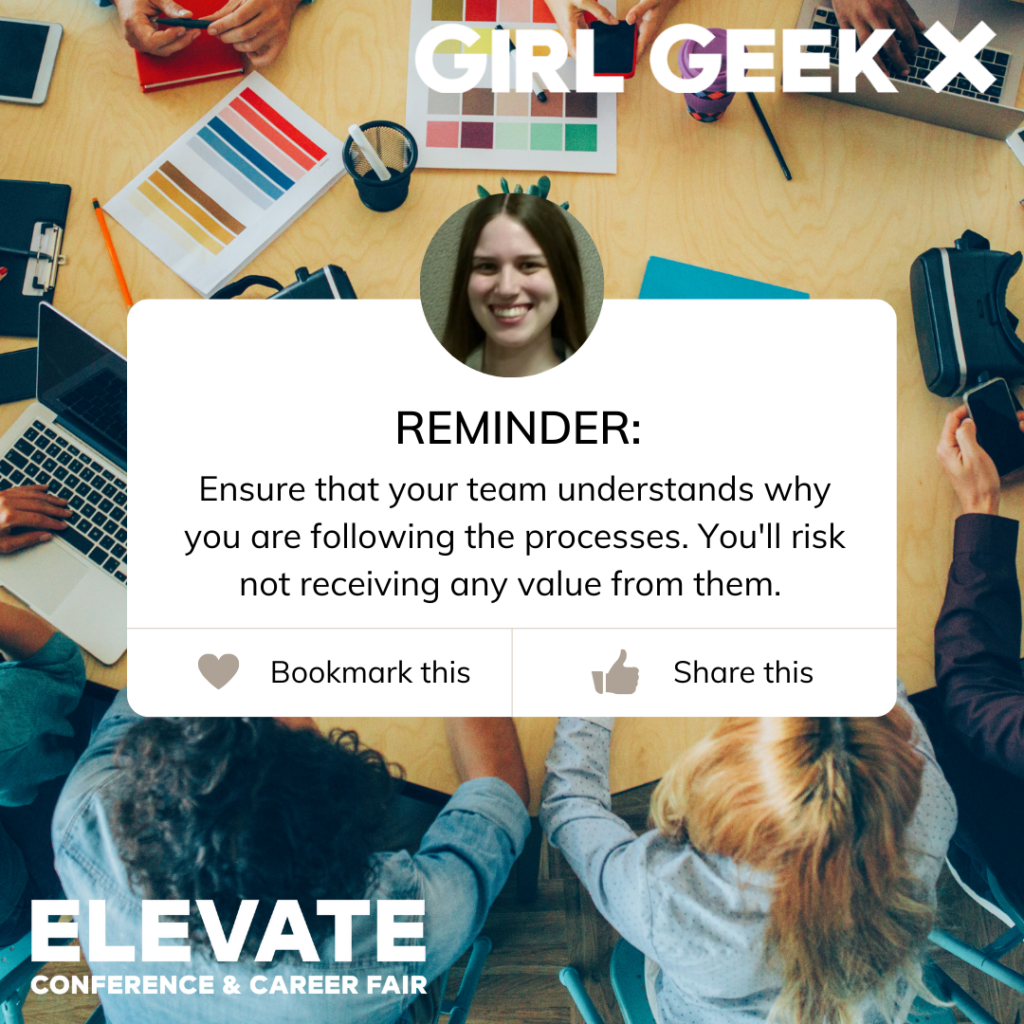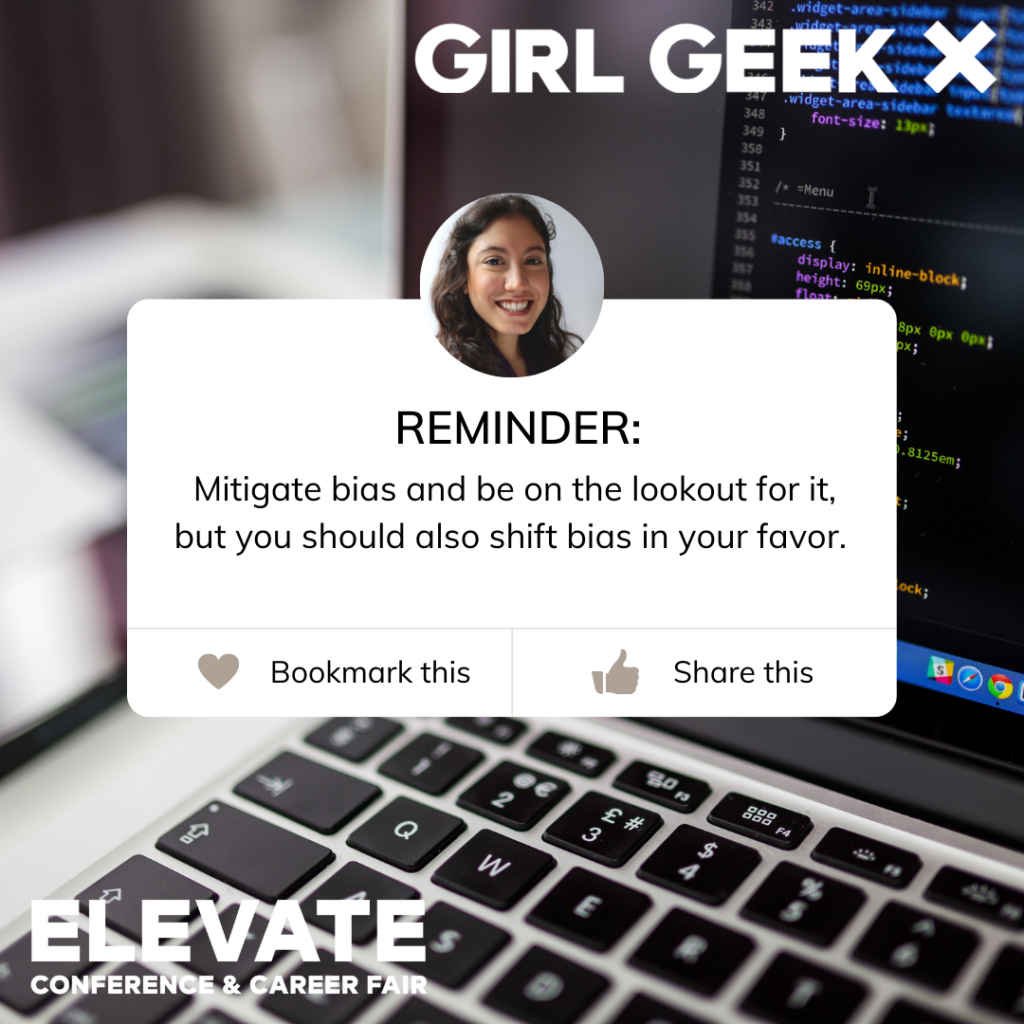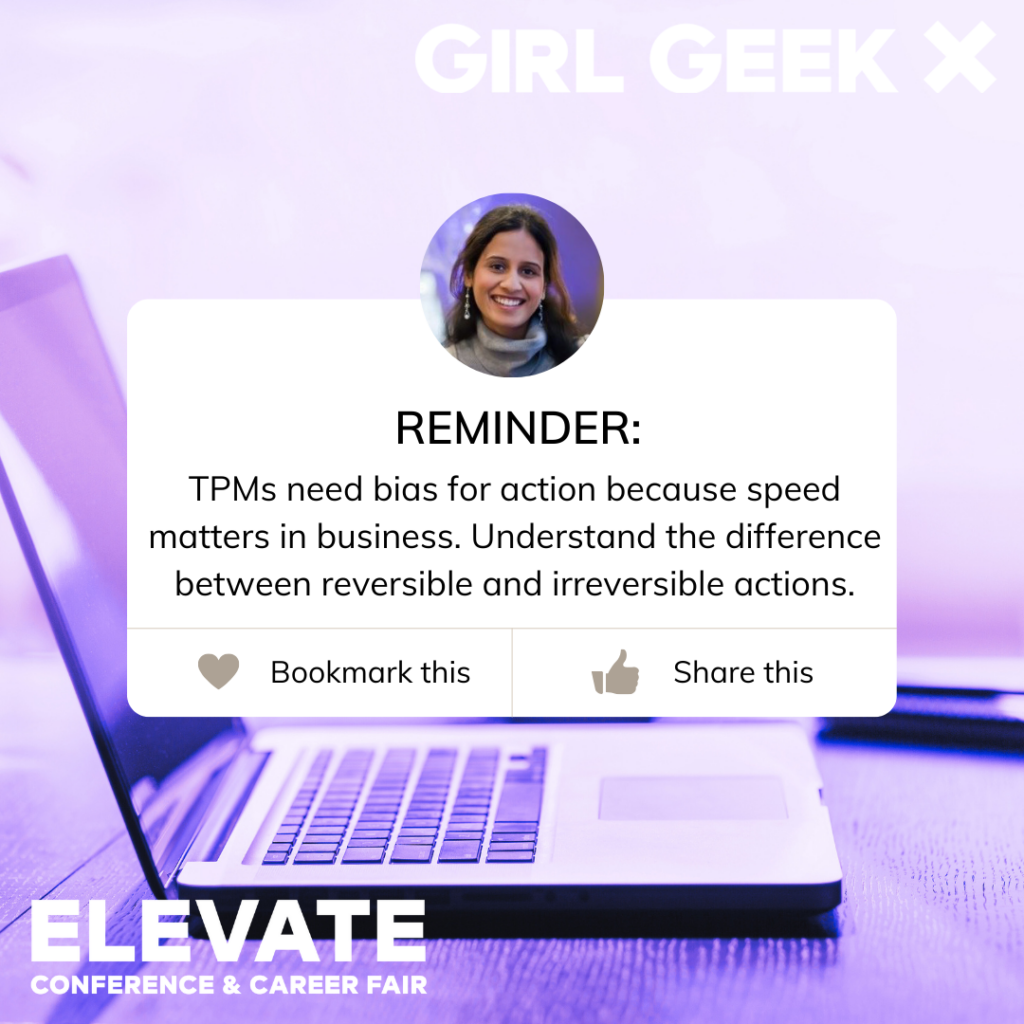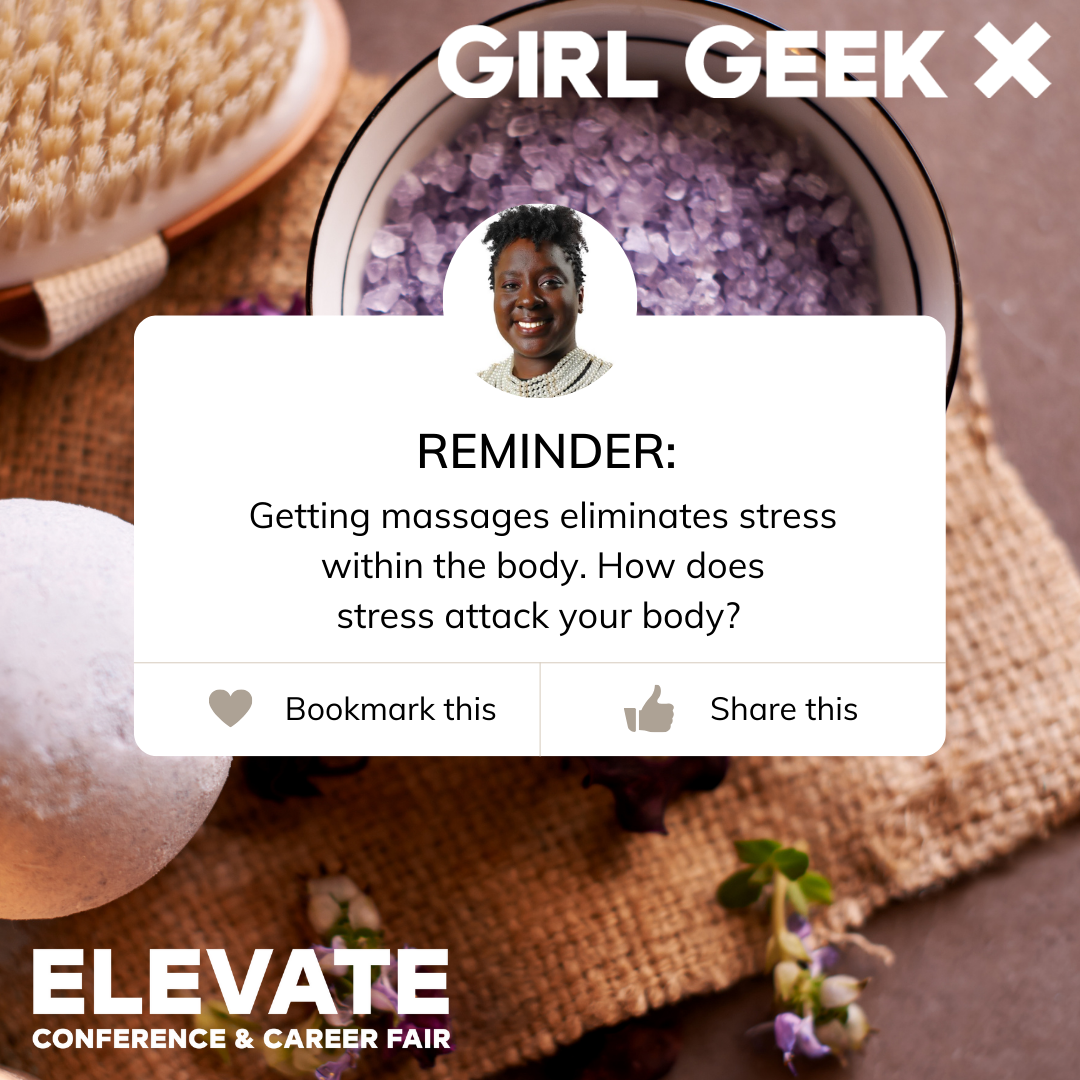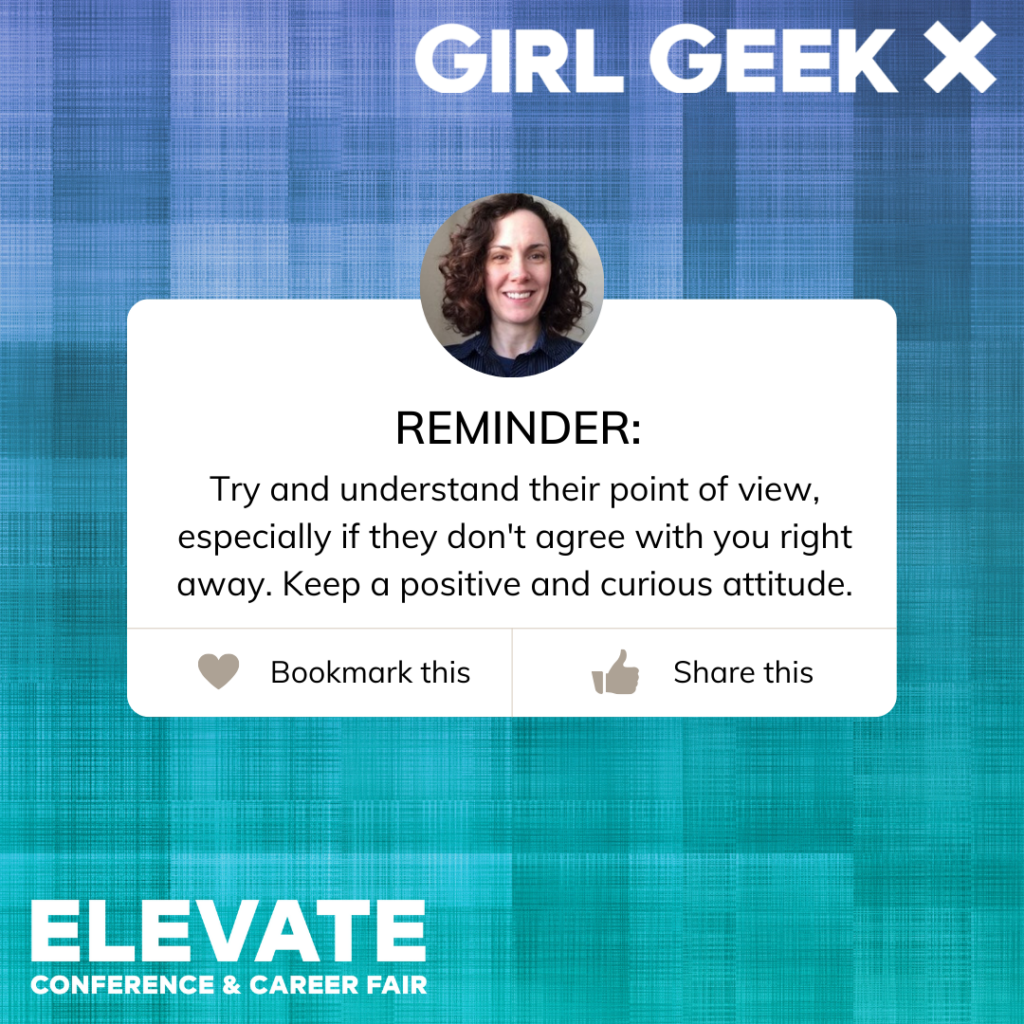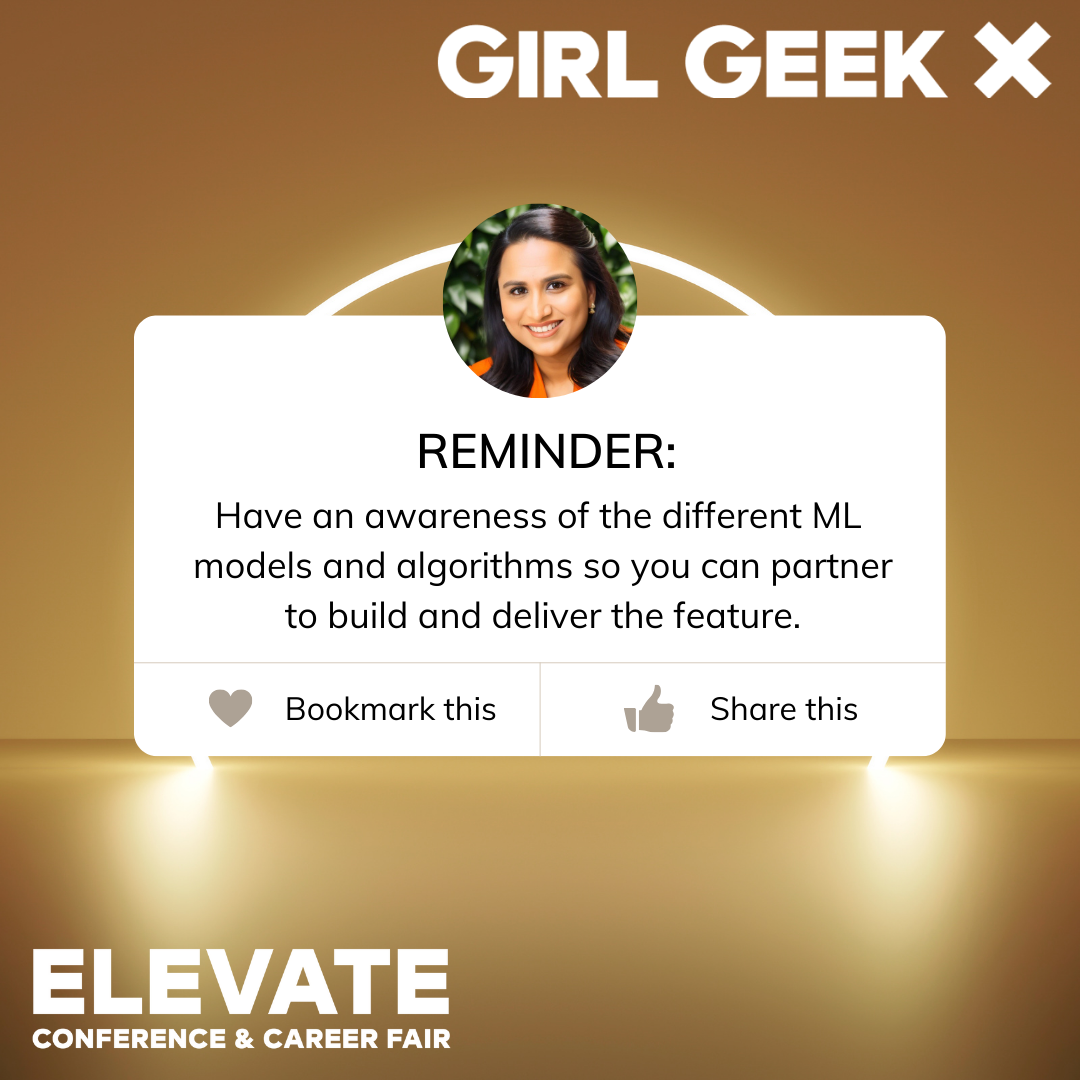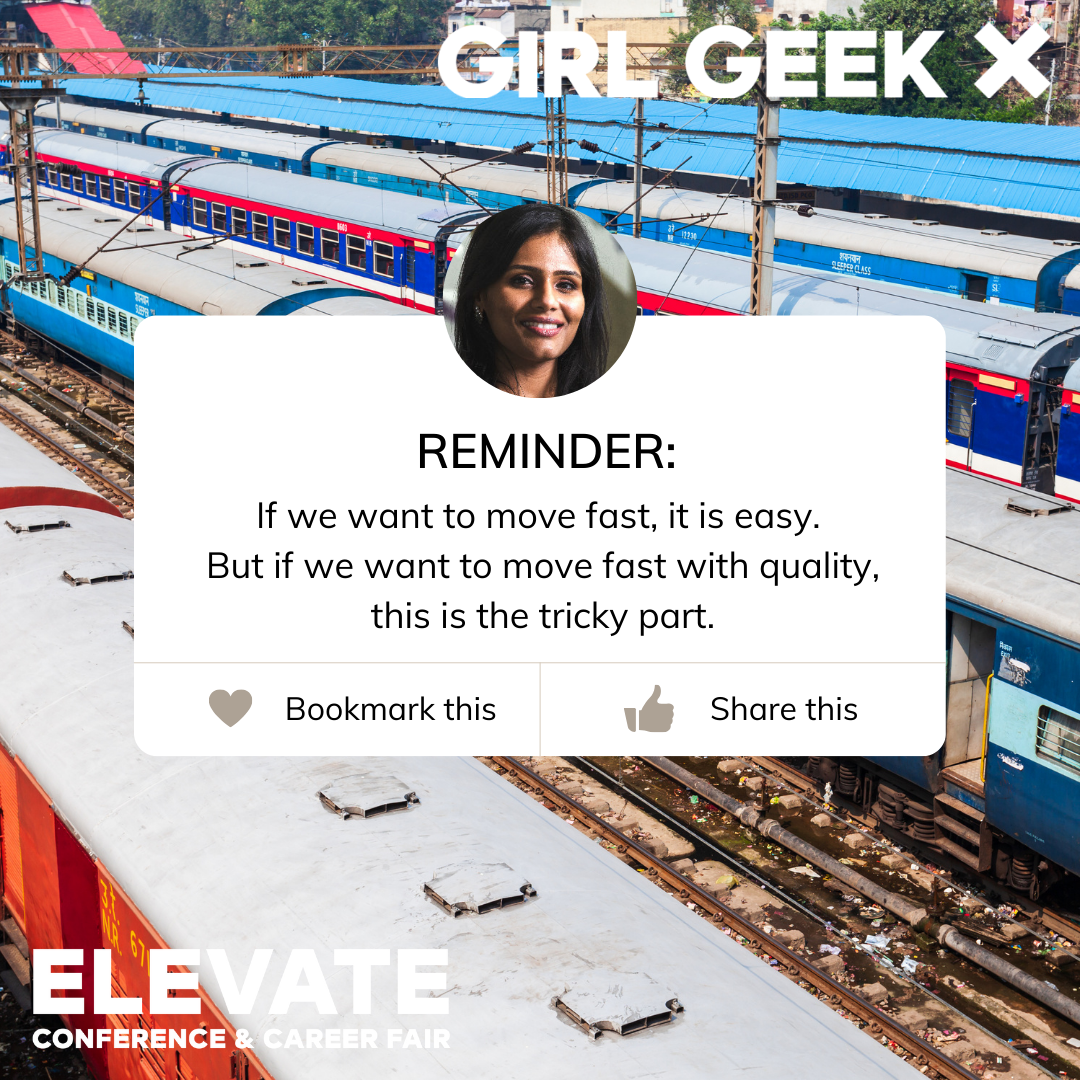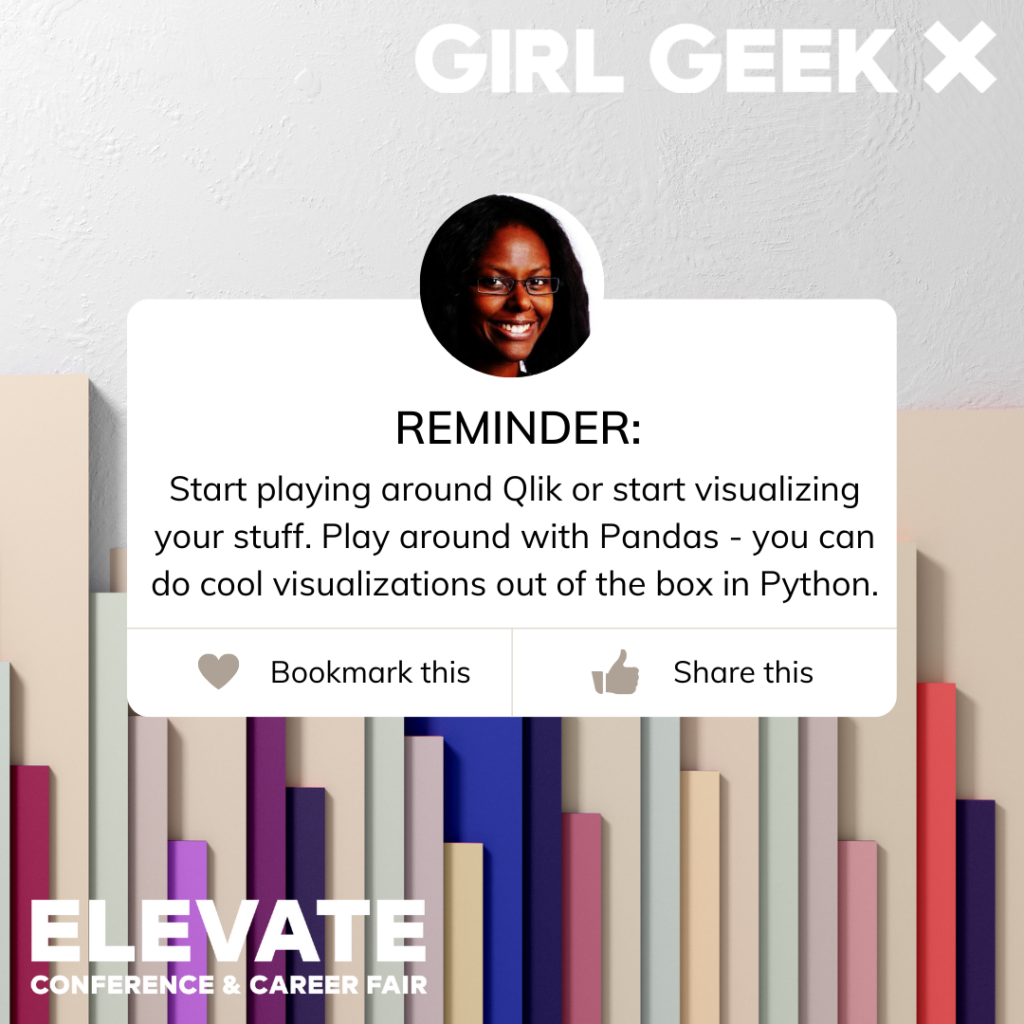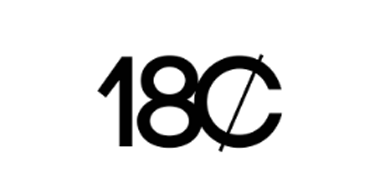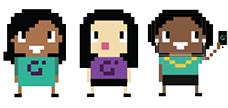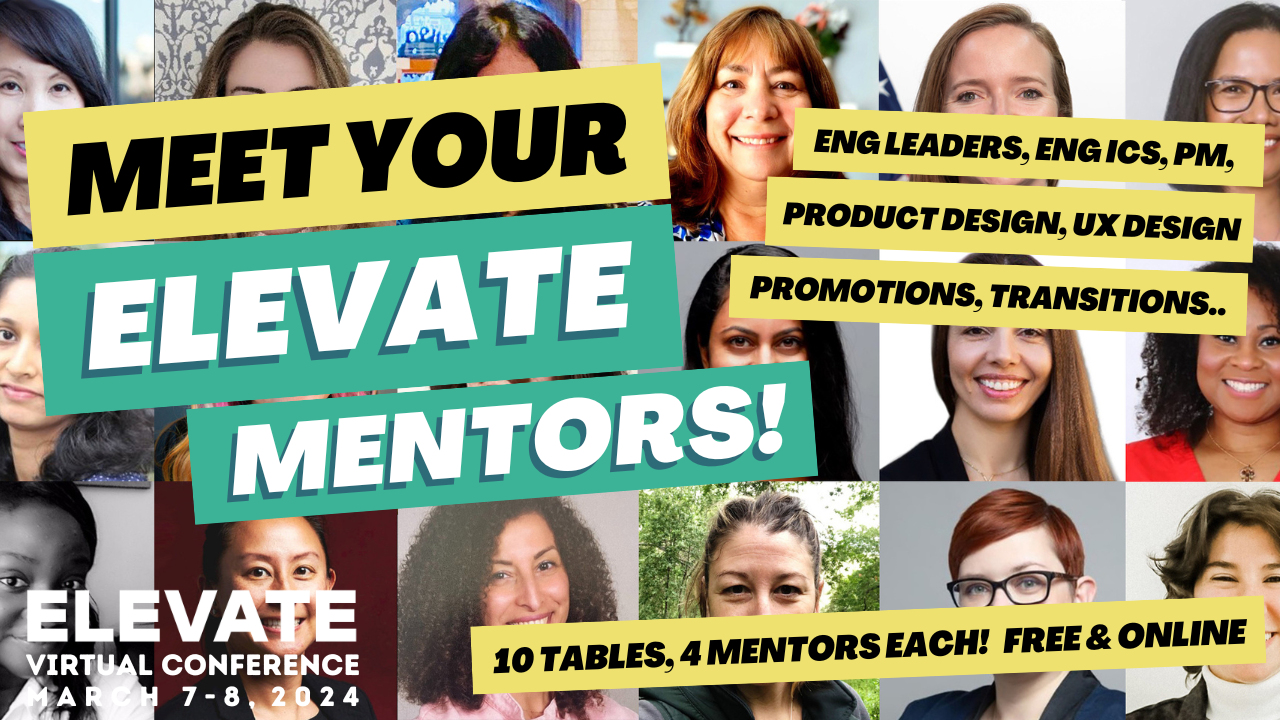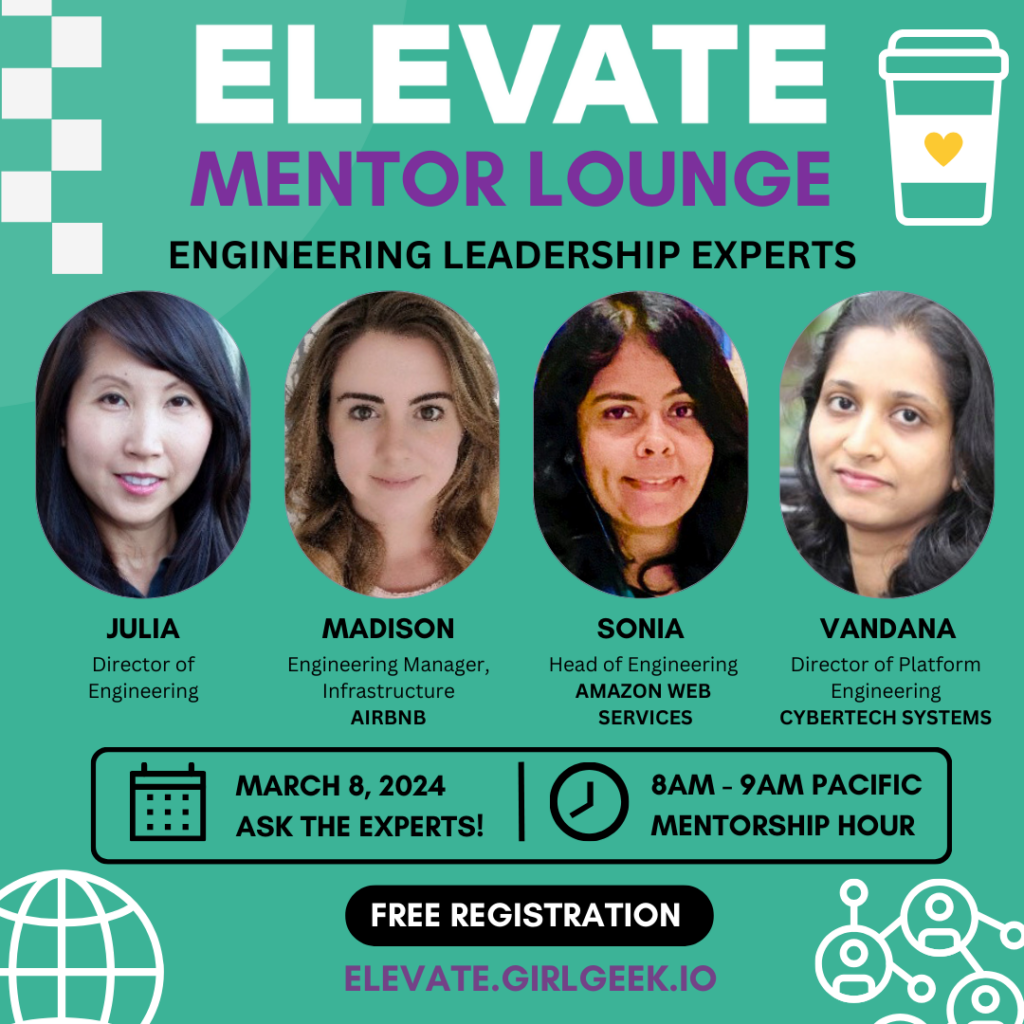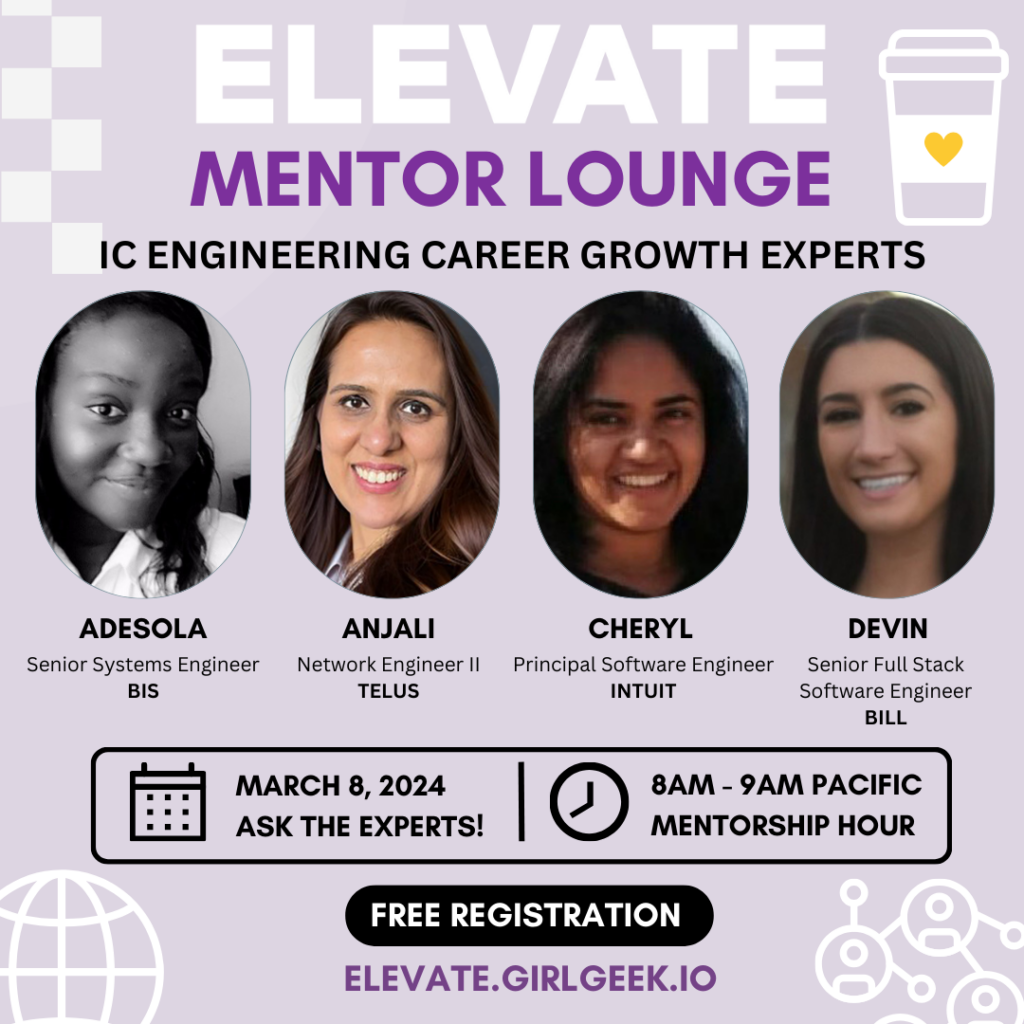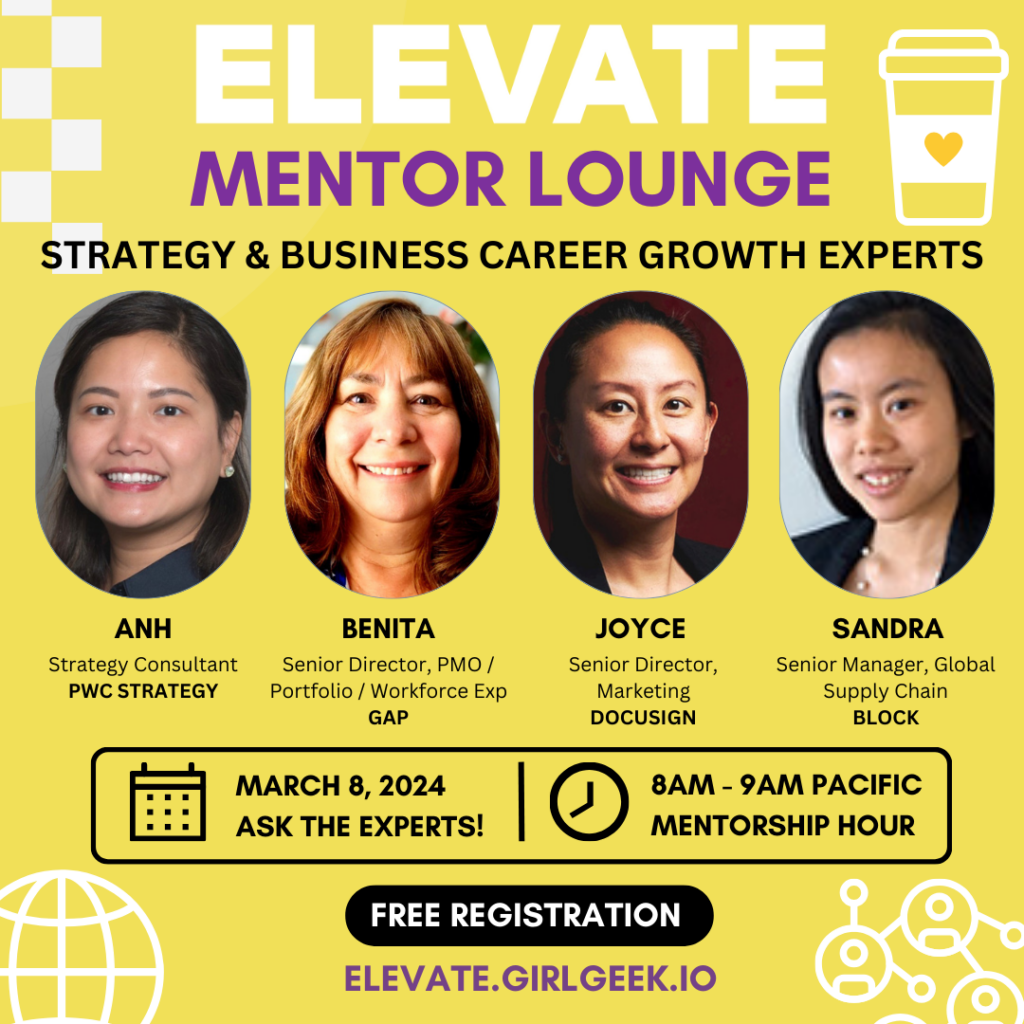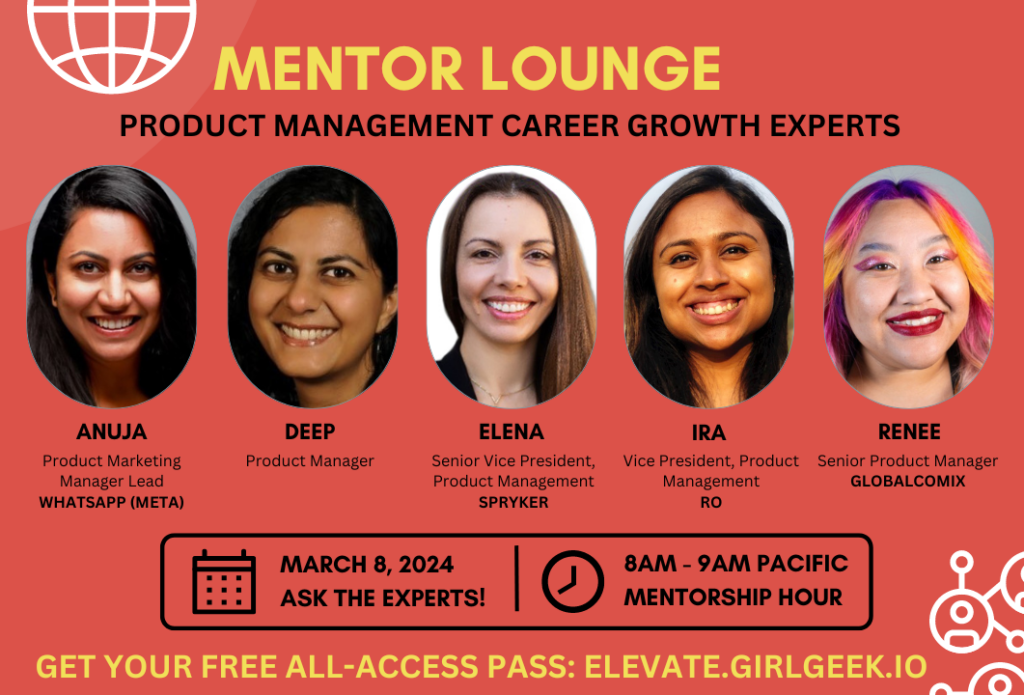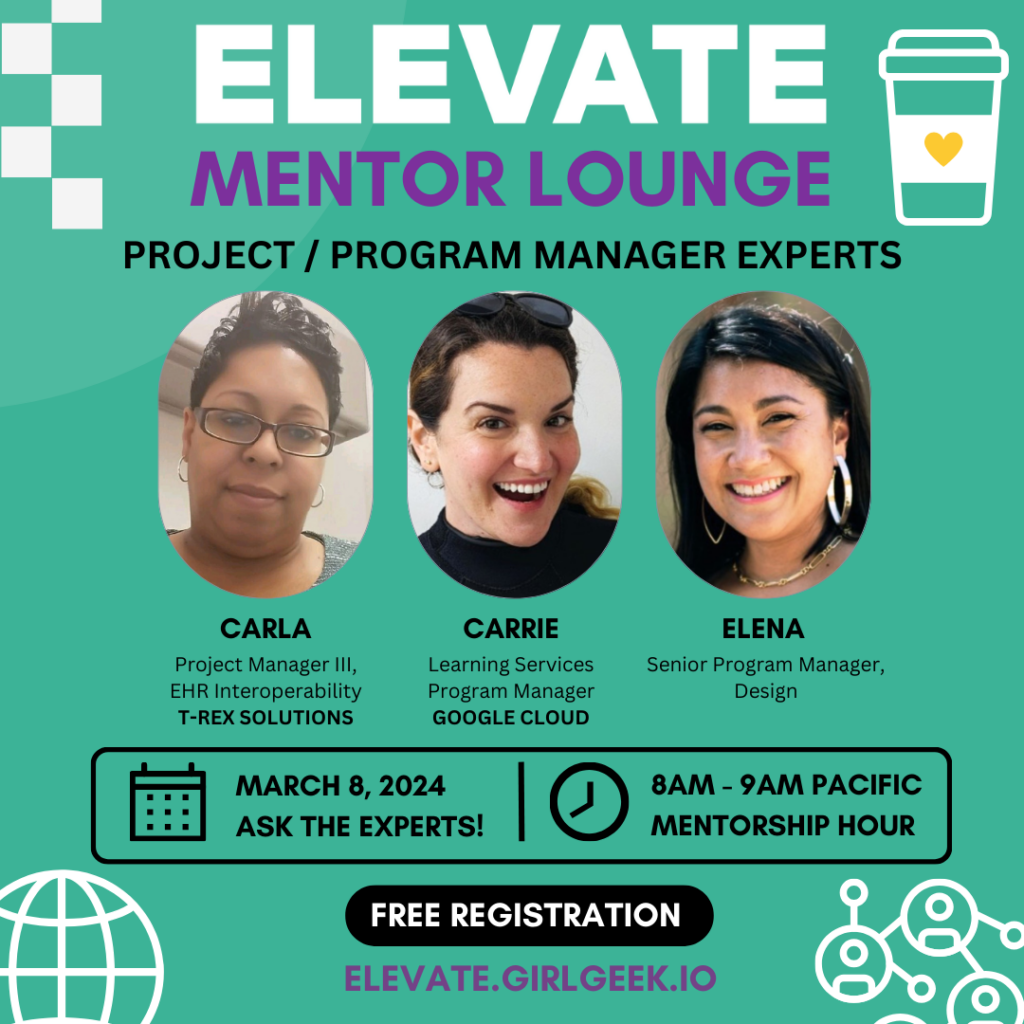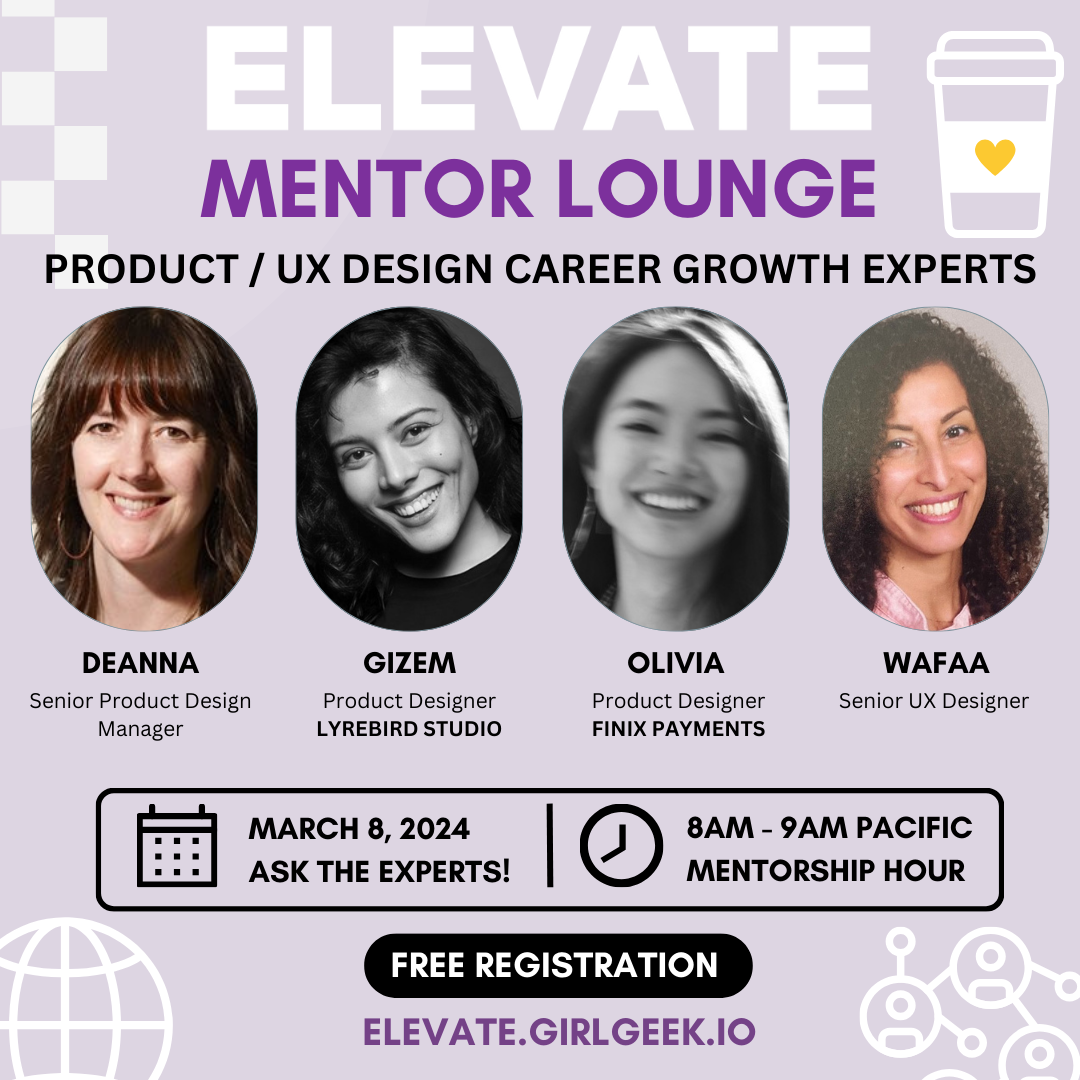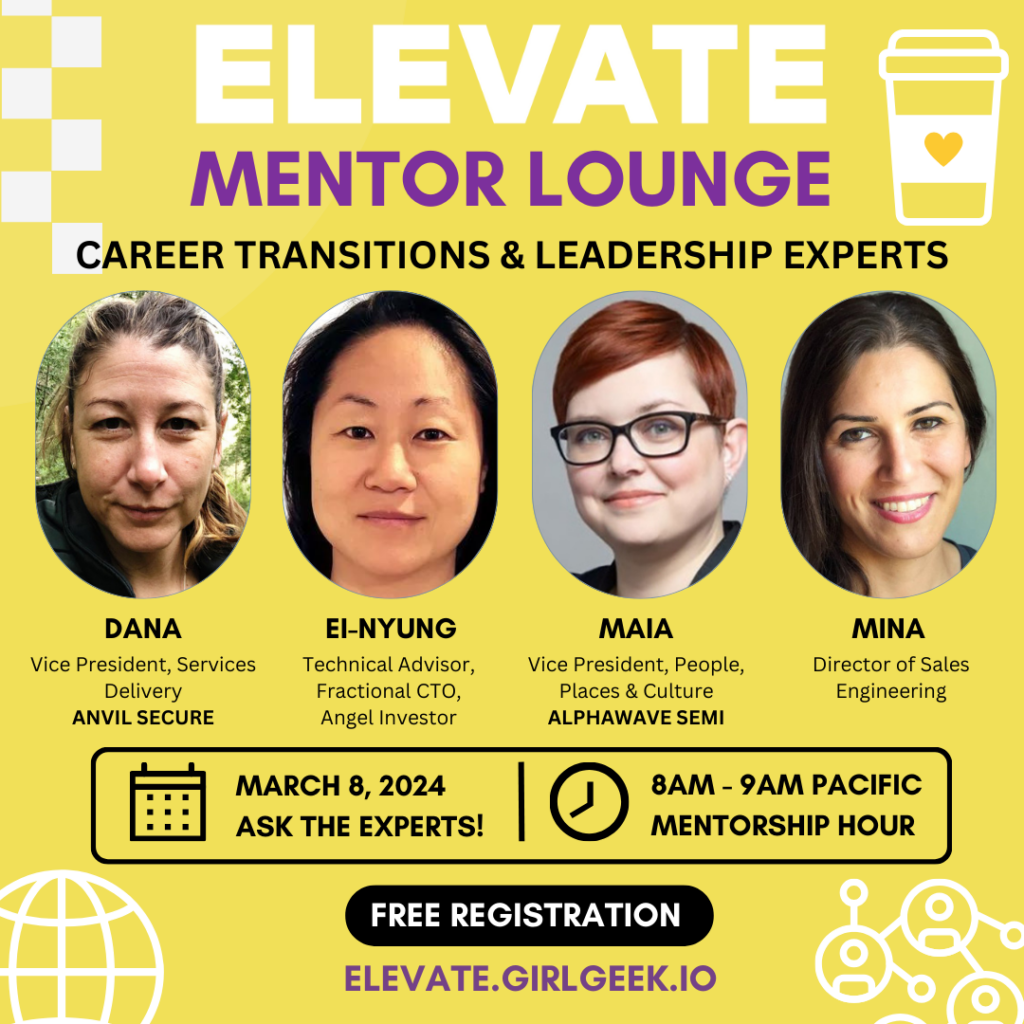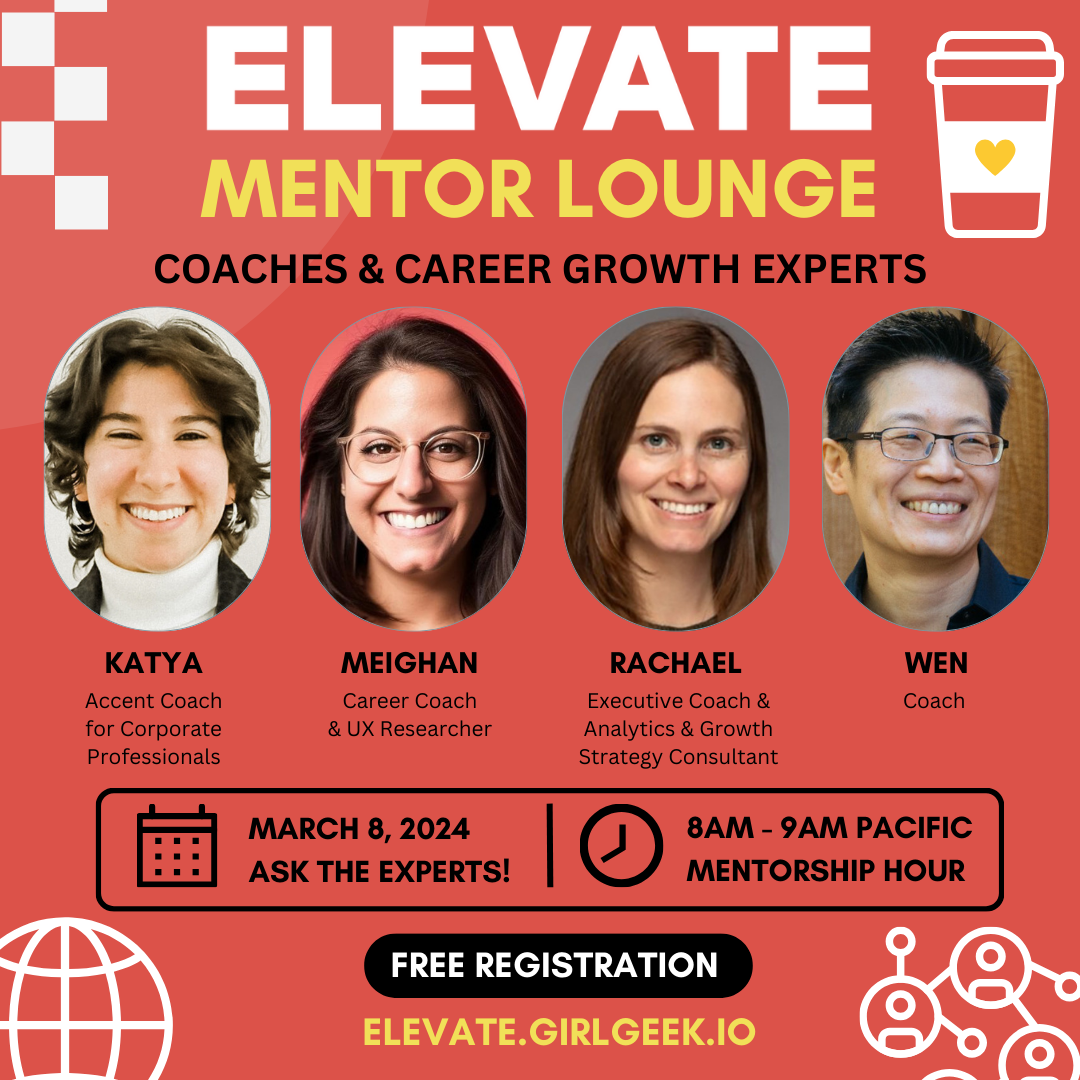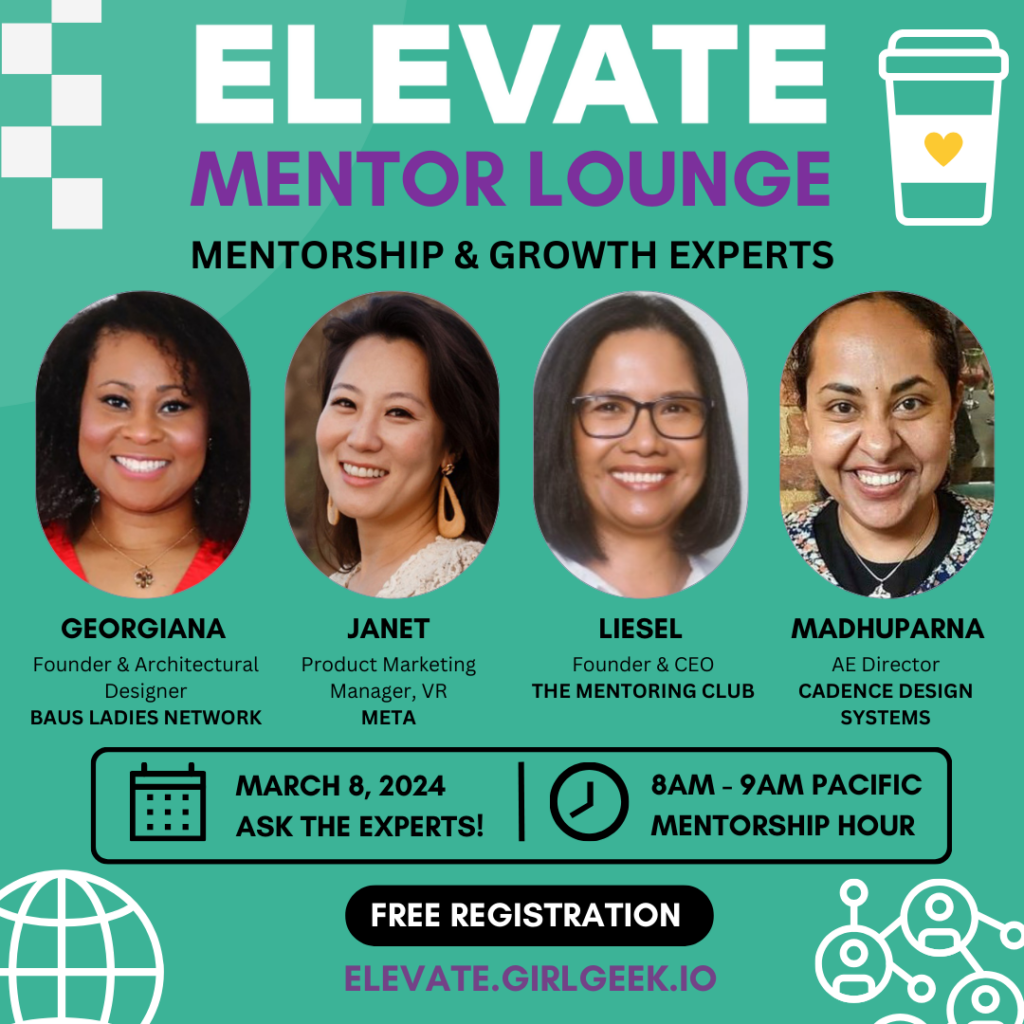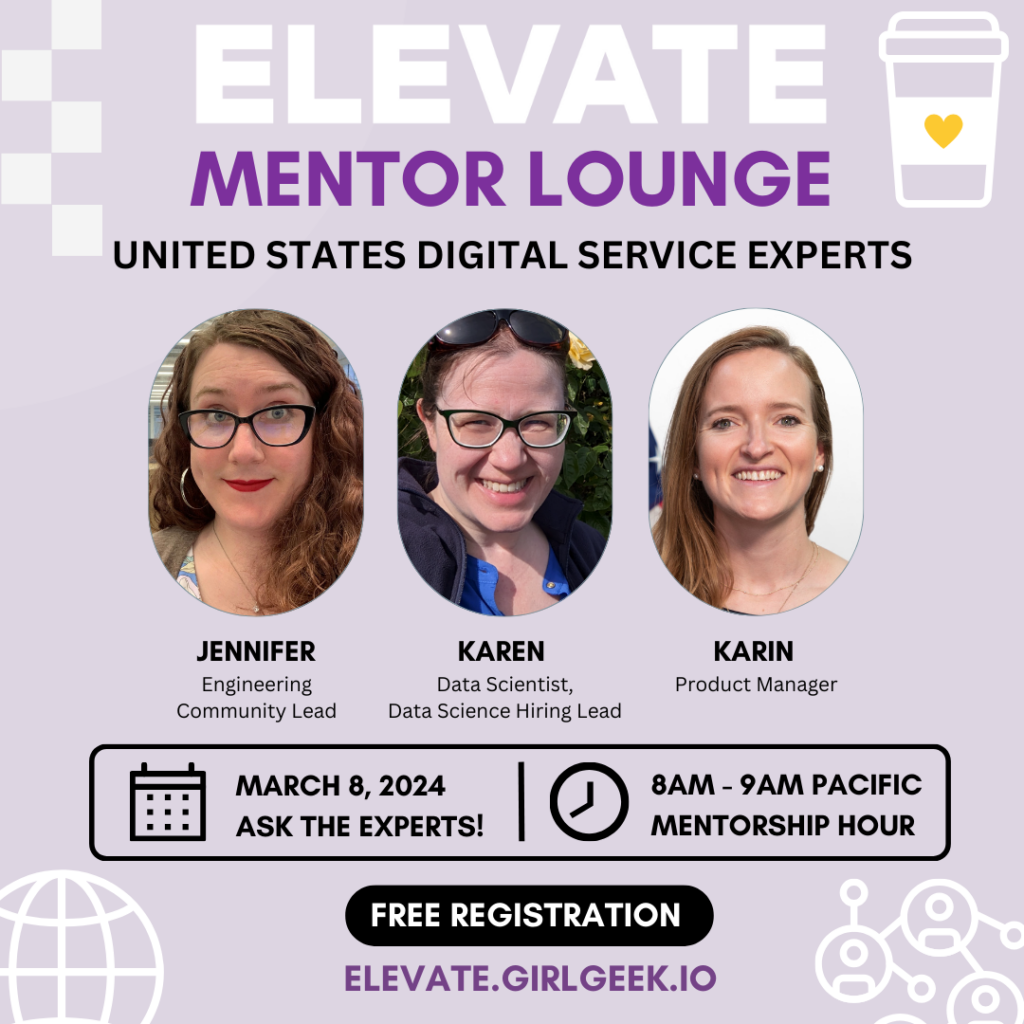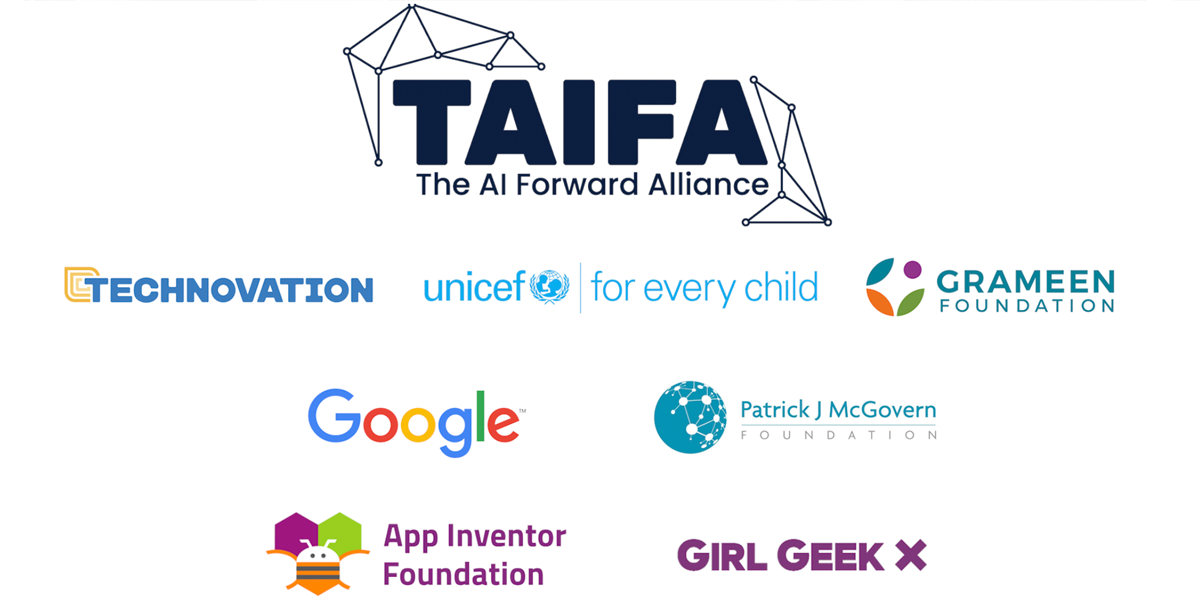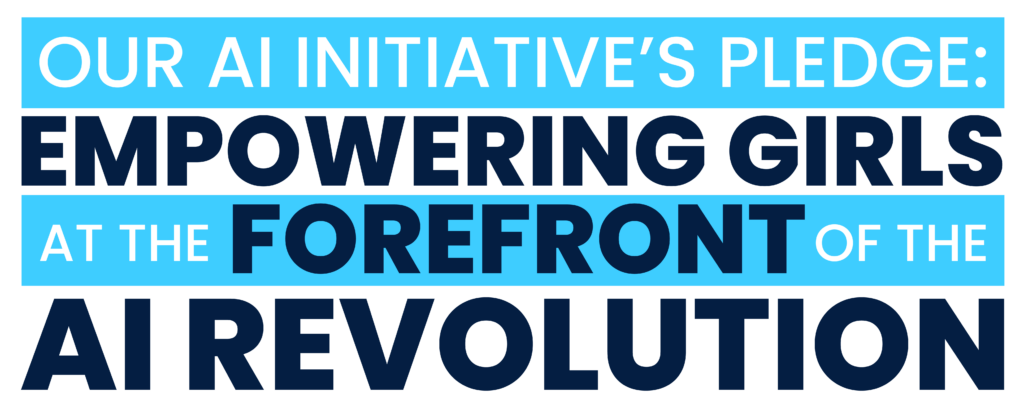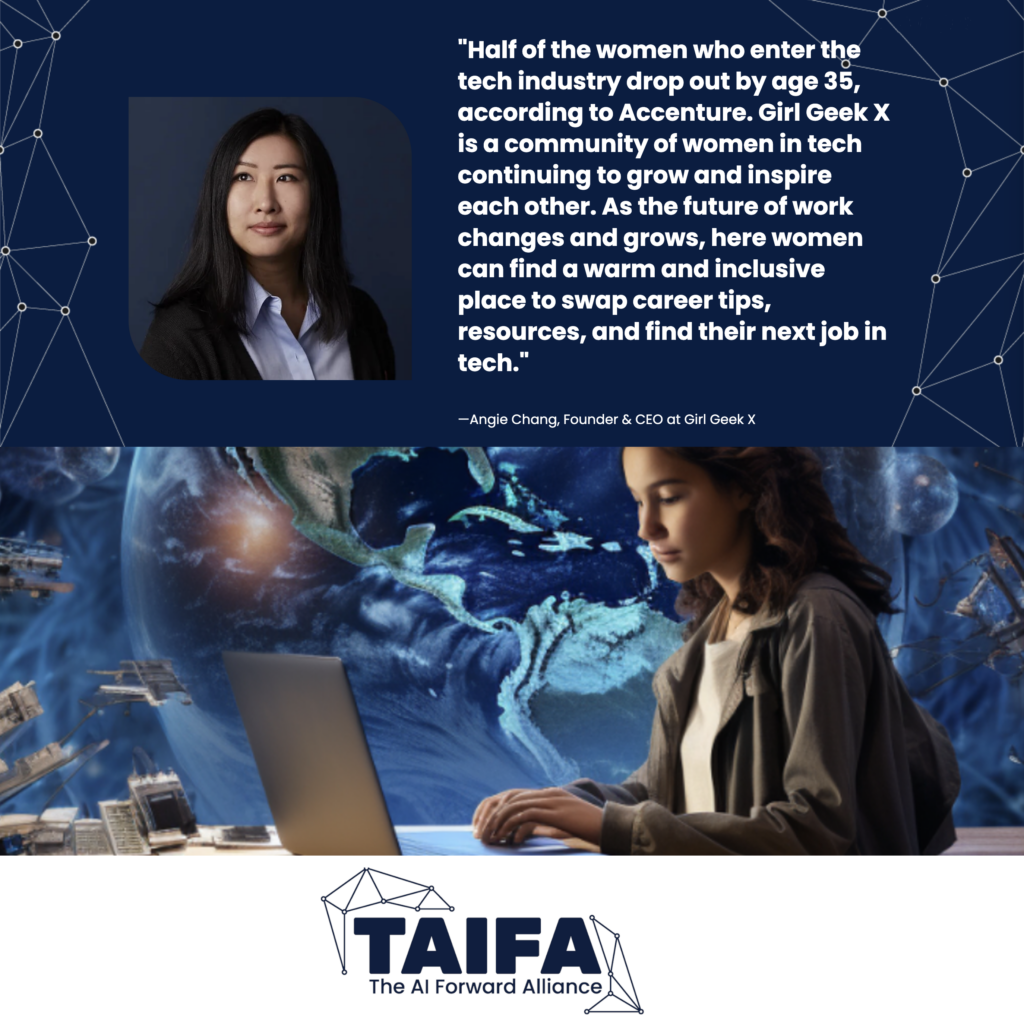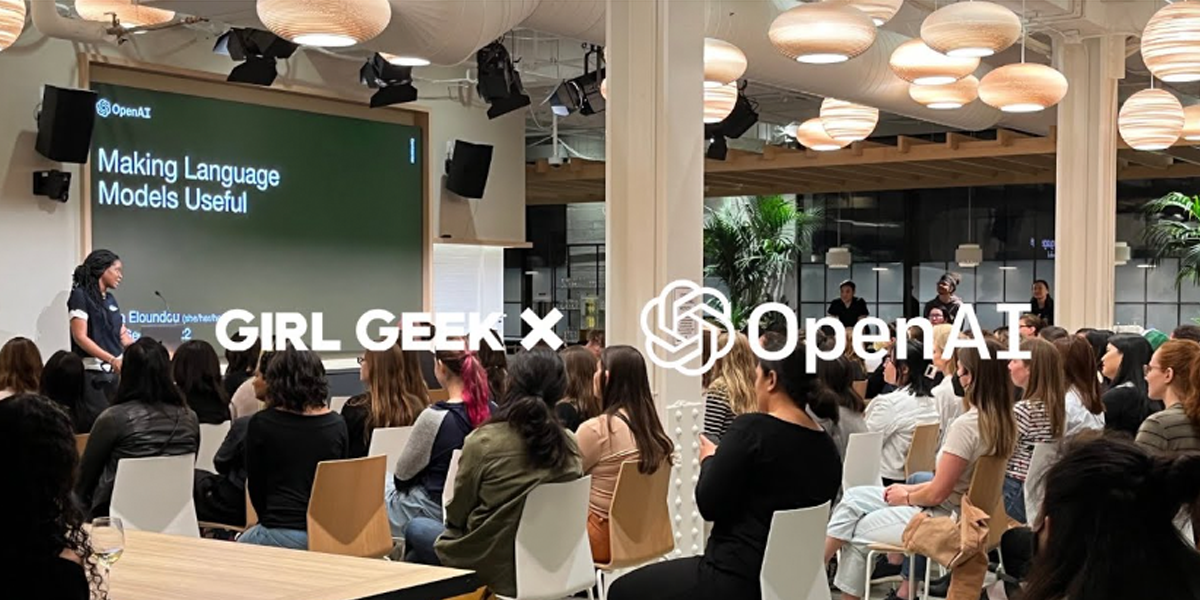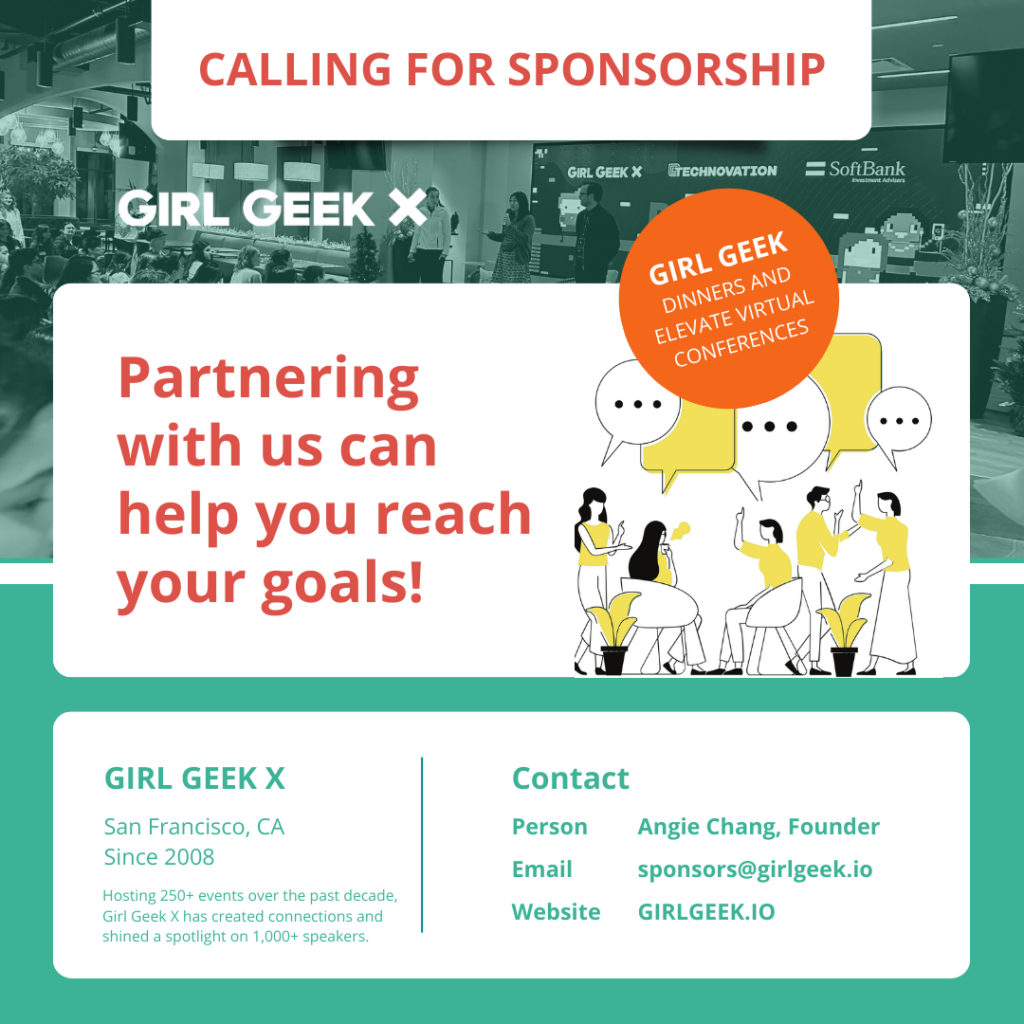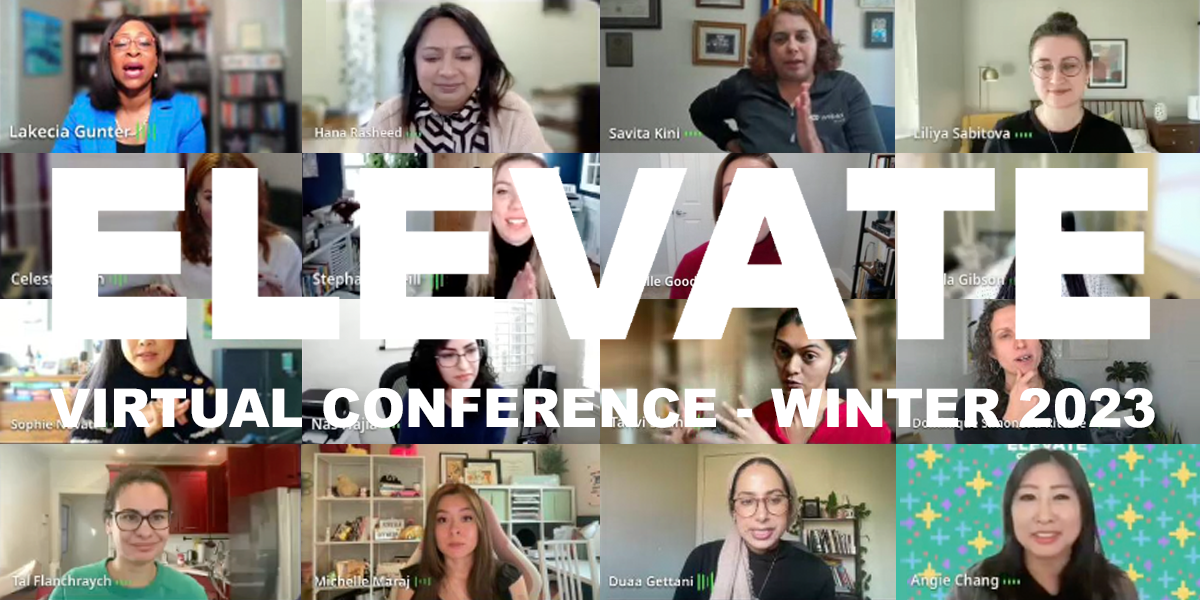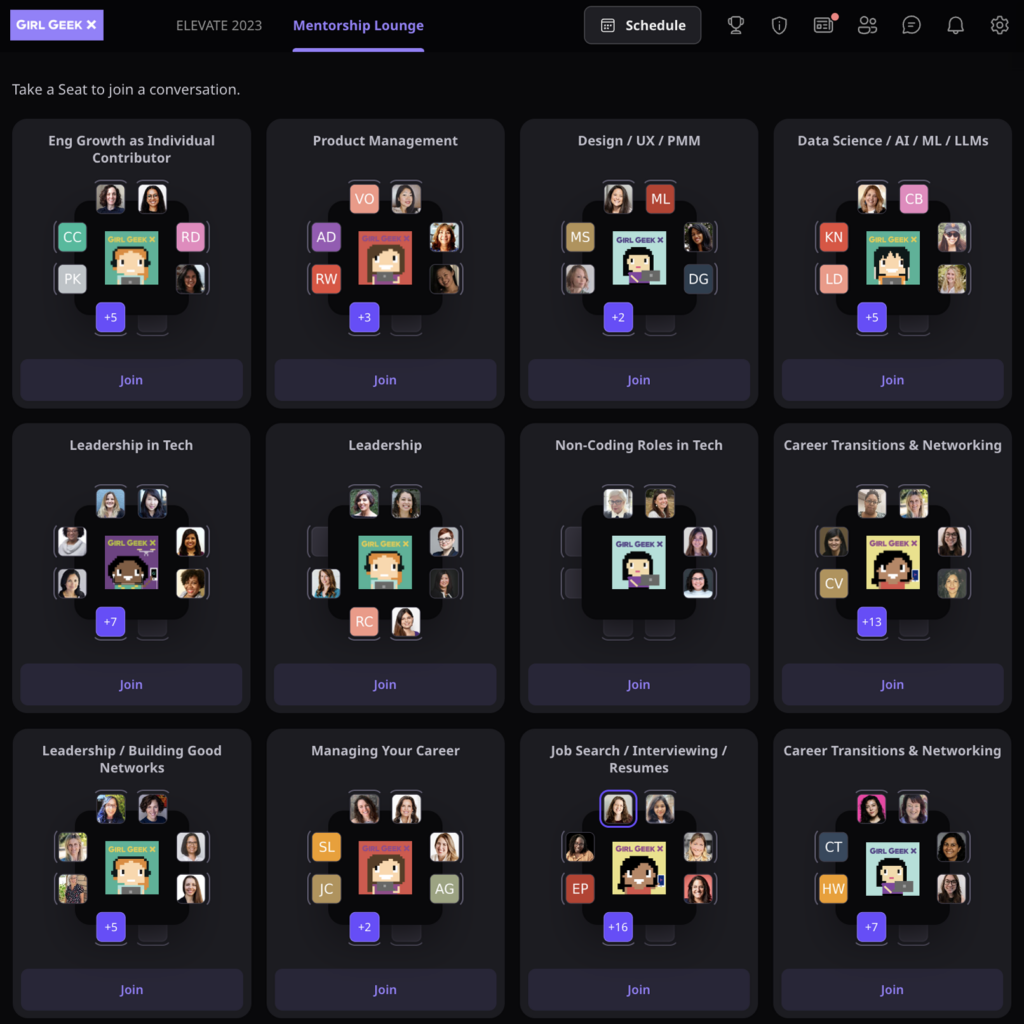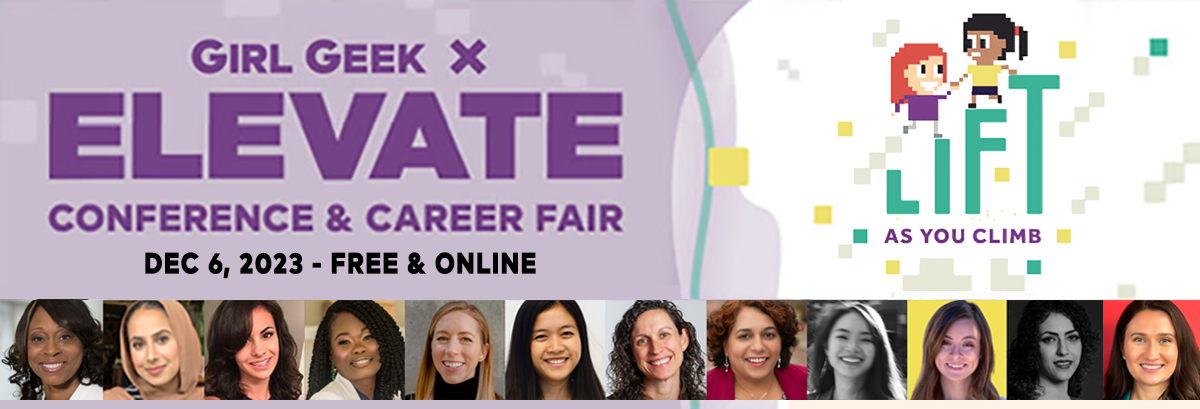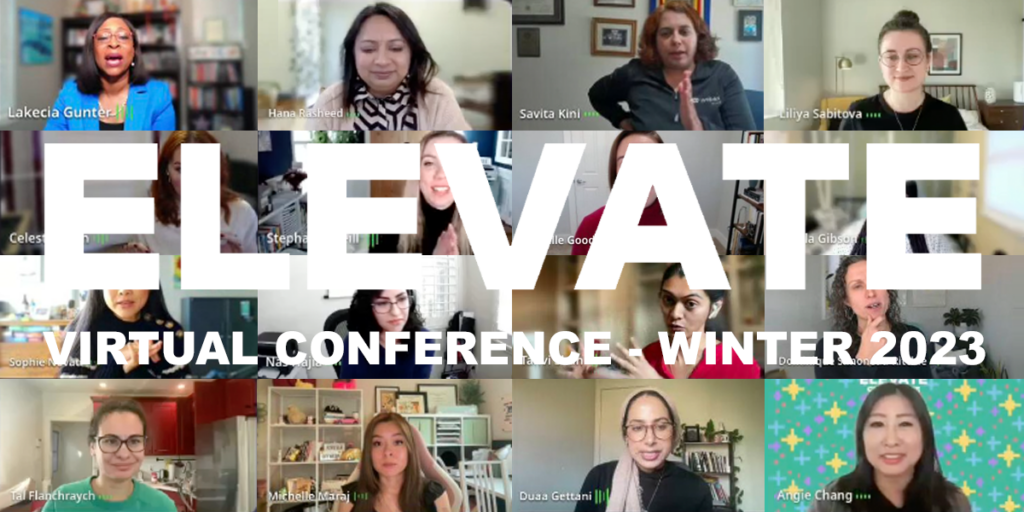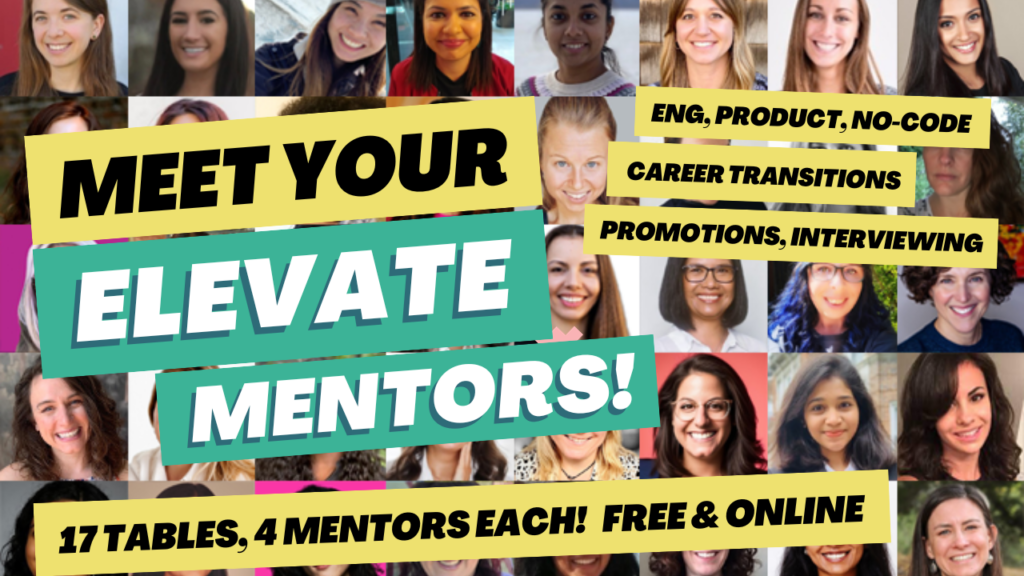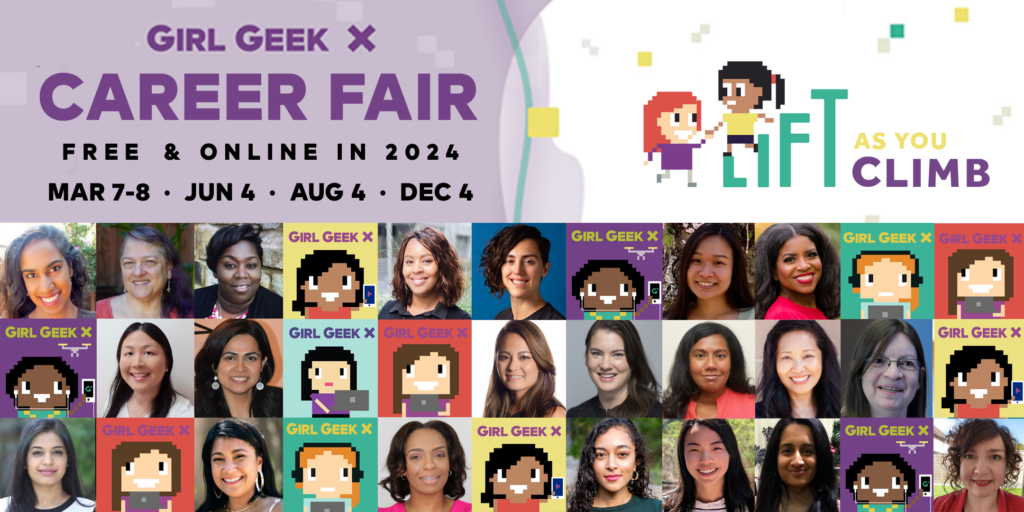In this ELEVATE session, Eiman Hassan (Alphawave Semi Vice President of Program Operations) shares her story traversing a career in engineering and operations. She talks about what these phases looked like, lessons learned, and key decision points along the way.
Like what you see here? Our mission-aligned Girl Geek X partners are hiring!
- Check out open jobs at our trusted partner companies!
- Watch more ELEVATE 2024 videos from the event, or just the “Best Of 2024” Videos!
- Does your company want to sponsor a Girl Geek Dinner or Virtual Conference? Talk to us!
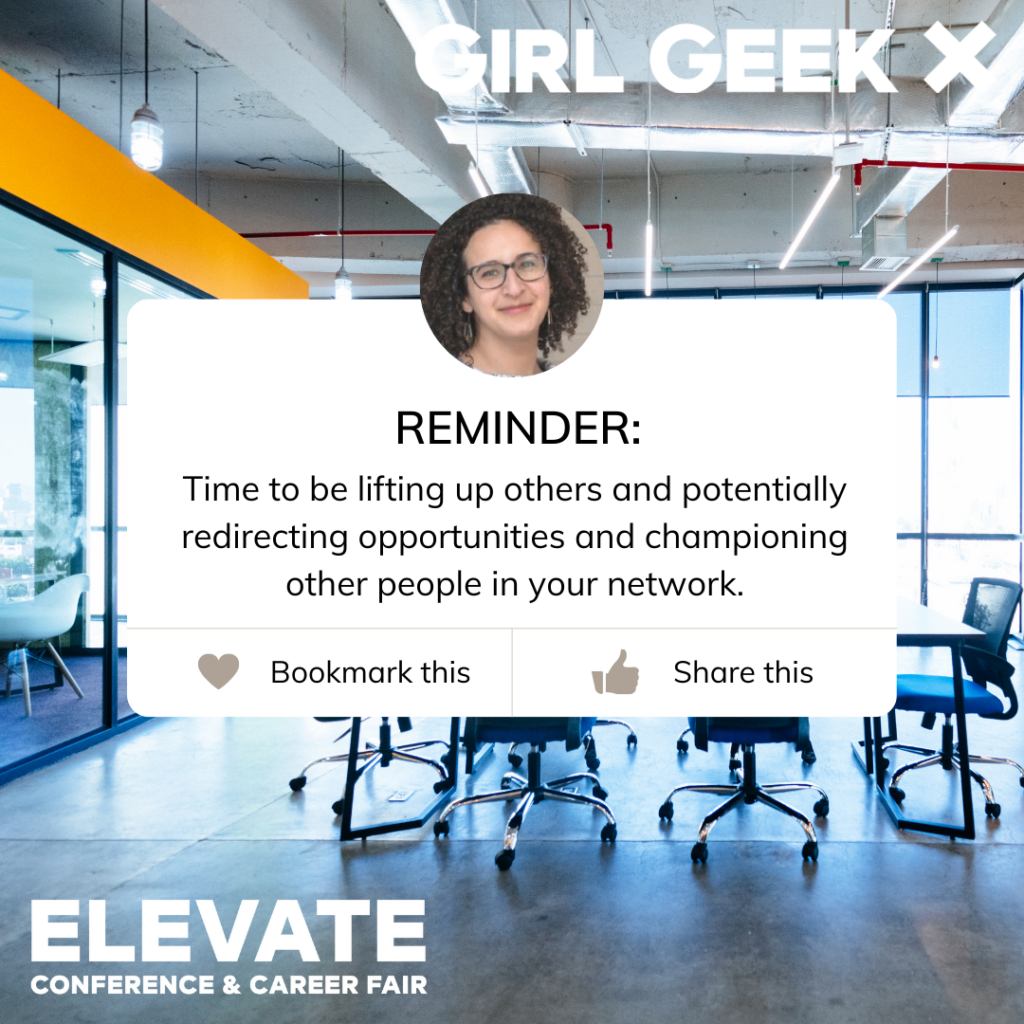
Transcript of ELEVATE Session:
Eiman Hassan:
First off, I want to just wish everyone a happy International Women’s Day, and I want to thank Girl Geek X for planning this event and also for keeping the word geek very positive. I would’ve liked to see more of that when I was younger. It’s a really good thing to be excited about what you’re learning and about the work that you do. We spend way too much time for us to not be thoroughly enjoying this and really putting the energy into it. That’s a very positive thing. I’m happy to be a geek.
All right, let’s go ahead and get started. I’ll just recap. Angie mentioned I’m VP Program Operations at Alphawave. That wasn’t what I had in mind when I first started my journey. I have a slide in the end, I’ll give you a brief snapshot of where things started and where I landed up, but I was dead set on being a circuit designer when I first started.
You can see two paths down there. If I had been stubborn about where I wanted to end up and strictly followed my plan, I’m not sure if I would’ve been happy where I landed up. Instead, I did take a few turns. Usually you end up with a lot more turns in the beginning and bigger shifts. And as time goes, you’ll start to figure out what is the right destination for you.
One great thing about engineering and working in tech, it opens a lot of career options for you. Opens the door to a lot of options. I know many other folks who have started on one path and ended up on another just by not really coincidences and opportunities show up for you and those do come along the way. What works better is you making decisions and really paying attention to what is speaking to you and where you’re finding your strengths along the way.
One thing that, looking back over this jumbled journey, a lot of the challenges and opportunities and big accomplishments actually start to fade into the background. What really stands out for me when I look back are the big decisions that I’ve made along the way, and no one else can really make those decisions for you.
One way to think about this when you’re going through your journey, and we’ll talk about three key stages, is to think about it as an investment portfolio and how you would handle that. Early in your career you have a lot more risk tolerance and you’re trying to figure things out. Then, later on, you’ll start to be a bit more careful. You have more responsibilities and more variables that you need to think about that get impacted. And then further and further you go, there’s a lot more things at stake, and making big decisions does become a bit more challenging. Definitely embrace that early part of your career, learn the most from it, and be open to change.
Move ahead and we can go over some of those key stages. I’ve got a little post-it note on the side for each of the stages, just trying to call out a few of the key lessons that were valuable to me and hopefully they resonate with others. Though I would really like to hear back on some of the experiences others have had, and any lessons they’ve had or questions they have on how to handle challenges in those stages.
Like I said, early days is your discovery stage. You’re trying to learn as much as possible. For me what that looked like, and the picture is a hint, I did move from Toronto, Canada to California. I did take up surfing among other things and really took on a lot of opportunities. The company I joined at the time had a training program that allowed me to explore four different groups in the first year.
What I found is how much you put into your responsibilities really translates very well into how much more value and more opportunities show up for you. That was a really exciting time. I got to do a lot of things that, honestly, I am still surprised that I got to do. There were really great things to be doing as a new grad out of university in the first year.
Be open to that, and start to look at what value you bring to the different responsibilities you take on. That tells you a lot about yourself and what kind of decisions you want to make along that path. Which a lot of the times, and I’m saying really be open to opportunities, sometimes you do need to think, “You know what, that takes me too far off from my path and doesn’t allow me to explore what is right now important to me.” No one else can make that decision. You really need to take responsibility for that, even in your first year.
Now, one really important thing to think about when you’re starting your career is to understand what your core responsibilities are. Like I said, there can be a lot of opportunities, especially if people see that you have strong ownership and you deliver, more and more opportunities can come your way. But you cannot sacrifice your core responsibilities for the new, shiny, exciting responsibility that comes up. You need to make sure you understand what those are and really fulfill those. That’s what builds confidence from your manager and from others that they can count on you on other tasks.
Another one is to ask questions and make sure that you understand what’s being asked, but don’t bombard people with many questions. Take a step first to think, “How much of that do I have a good guess on?” That’s a good way to exercise your assumptions muscle and prove to your manager, whoever you’re working with, that you’re capable of actually making some of these conclusions. Also, the feedback that they will give you if you’ve landed on the wrong conclusion will be much higher value than if you just asked a plain question and just gave your manager homework to answer it for you.
Last but not least is embrace feedback, and that’s throughout your career. It doesn’t mean that everything, every bit of feedback that you get back is fully justified or that you have to take it all completely to heart and act on it, but really be open to trying to understand why someone is saying what they are saying. It could be that they misunderstood your approach to something, or it could be really something you need to work on. Make sure that you’re open to that from early on. If you close the door to it, you actually miss out on a really valuable resource. Make sure to keep that open.
To quickly recap, learn as much as possible and try and propose the answers rather than just a big list of questions, keep an open mind on your journey, and prioritize your core responsibilities. Those are three top things that I would suggest to keep in mind on the first stage of your career journey.
Now in the mid-career, at this point you have probably figured out where some of your core strengths are and you’ve proved them to folks in your organization. Maybe you’ve even had to make a change in career or to a different company, but you really should have a better understanding of where your value adds are.
You want to try and find a balance at this point. You are still going to get some opportunities that are outside of what your core responsibilities are, but there’s a lot more expectation of owning your core responsibilities, and that piece of the pie has probably grown a fair bit. I do suggest to try and reserve time and energy for growth opportunities.
There’s two sides to that. One, you want to push yourself outside your comfort zone with those new opportunities. But also, if you try to work only on your core responsibilities, it could be something that’s recurring that you need to get done, but there can be more and more volume. If you go beyond a comfortable amount of time to dedicate to that, you really aren’t going to have an opportunity to think about what the next step is, whether for your company or for yourself. And you’d be actually missing out, both yourself and the company.
At this point in your career, there is an expectation of more than just doing what you’re told. You really need to be thinking about what are the interdependencies with other teams, how the company works and what the culture is, where the challenges are, and where the opportunities are. Those can’t always just be top down. You really need to be thinking about those, articulating them, and coming up with ideas. And if you don’t protect a little bit of time to do that, you really aren’t going to get around to it. The company loses out, and so do you.
In terms of lessons to take away from this stage, one, understand the company culture and how things work, how people move forward, how they get promoted, what the interdependencies are, and think about how does that resonate with you. It doesn’t necessarily mean this isn’t the right culture for you, but it’s really important that you think about it and figure out how things work and where you fit into it. Reserve time and energy for the growth opportunities.
And last but not least is start to figure out what self-care looks like for you. That’s something that a lot of people are starting to think about more. It’s not always taking time for proper sleep and exercise and maybe going for a massage for example. For me, serving on boards, which is something that I’ve done over the last while and is interesting for me going forward, and participating in events like this and having these talks, mentoring, those are some areas that actually feed positively back into me. Sure, they take some time; but it’s actually a form of self-care for me. So figure out what that is for you, and just do it justice. Make sure to keep time for those things.
Now at this point in your career, you have established your seniority, you know what your strengths are, and you can’t be as open to rogue opportunities. You do have to be more selective and think about, does that really fit with the strategy, say, within your team? Or is it something that really is an offshoot that doesn’t make sense to be involved on? But it’s not just about saying no at this point in your career.
At this point you probably know other people who could do a good job of it and just need someone to champion them to the right opportunities. Make sure you’re thinking about that. This is the time to be lifting up others and potentially redirecting opportunities and championing other people in your network. Make sure not to shut down those opportunities when they come in. Really leverage those and help the organization and other people move forward.
Keep learning and growing, and look outside your expertise area and your industry for inspiration. I’ve been in semiconductor for the whole of my career, but I found that attending different conferences, involvement on boards and other areas has really helped to give a lot of positive feedback and give me a different perspective on things. It also is a great way to clear out a lot of the things that you might be thinking about relating to work. It gets you out of the weeds.
I want to drive quality and expectations and best practices. So this is something now that you know how to do things well, you don’t keep that to yourself. You should be growing that to other groups within the organization or to a mentor; really sharing that and helping to refine your own best practices.
In terms of key lessons, you want to identify and articulate your value proposition. There was a great talk as part of the conference on that. I highly recommend to review that. At the opportunities that don’t really fit on your path, make sure that you’re championing the right people for those. It helps whoever is asking you keeps that information and requests coming to add value into your network and helps you champion people that you’re seeing add value in the organization and need some support. This is the time to give back. And then, exploring the wider ecosystem to gain context and perspective on what you do.
When you look back, what will you remember and what will you be most proud of? Like I said before, for me the things that I’m most proud of when I look back are the big decision points that I took along the way.
Try to fast-forward and do an imaginary look back on your career. What do you want to see? Really imagine that next step and make sure, is that where you want to be? And if so, what steps are you going to take to get there? And if it’s not where you want to be, what do you want to imagine?
Take some time, especially between the intermediate stage and this stage of your career. I find a lot of people get to a frustrated point where they’re not seeing opportunities come to them and they’re seeing other people move forward. Take some time to imagine what the paths are for you, which one is the right one, and start to work towards that. It’s really something that you need to own yourself. The more you articulate to others, the more opportunities will actually come your way.
We’re a little tight on time, so I’ll just spend a couple of minutes on this and then we could take a look at the chat for any questions. This is just a snapshot of my journey. Like I said, I started out on analog design, moved into a couple of different stages. In the middle there is where I made a big decision to move into operations, and it’s really been a great fit for me.
I mentioned about serving on boards, that’s something that I started in the mid of my career and is still something that I’m pursuing. And with a few moves along the way; acquisitions and being acquired and being part of a company that acquires another has really taught me a lot of things. I’m at Alphawave Semi now, which was a startup a few years ago. I’m really enjoying working with the executive team now and helping to figure out the next steps.
Let me take a quick look at some of these questions here. I don’t know if we were set up for anyone to ask questions in audio, but I’ll just take a look at the questions on the chat.
Setting time to reflect and set goals, it’s very important, and really helps you to think, “Are you being too rigid with your original plan? Or have you been open to other opportunities that are coming your way?” And are you driving towards them? If you really see something on the horizon to be brave to actually speak up about it. The first time I decided I wanted to serve on a board, I was very nervous to actually bring that up.
Let’s see here. You’d be surprised what skills you can learn outside your core responsibilities; that might become things that give you an edge. Absolutely. And honestly, getting involved in areas that are outside your core work becomes a safe place for you to exercise some of these things like negotiating and talking about your next chapter, what you want it to look like. Sometimes talking about it to a friend, or even somebody that you’re just meeting at a conference, that can help break that ice and make it easier the next time you need to talk about it with your manager.
Speaking to self-care, that’s something that we really need to put time towards, but think about what it means to you. Nobody else can describe what is important to you. It can come in very, very different ways.
Let me see here if we have any more questions. In terms of the talk, I think it was better to just look at the agenda. I think it was one of the main talks of the sessions yesterday, so take a look at that for the value proposition talk.
“When you move to US and then come back to Canada, how do you make that decision?” That was actually a personal decision for me. I have a lot of family here, and it was a very exciting stint to be in the US.
But I think that’s the time for today.
Angie Chang:
I think the talk about the unique value proposition was the Corliss Collier keynote.
Eiman Hassan:
That was the one, the keynote.
Angie Chang:
On how to build your personal brand, I believe. Yeah, you can go back and rewatch that. Thank you so much. This was really great. Thank you. And we will move on to our next session. See you there.
Eiman Hassan:
Thanks.
Angie Chang:
Thanks everyone.
Like what you see here? Our mission-aligned Girl Geek X partners are hiring!
- Check out open jobs at our trusted partner companies!
- Watch more ELEVATE 2024 videos from the event, or just the “Best Of 2024” Videos!
- Does your company want to sponsor a Girl Geek Dinner or Virtual Conference? Talk to us!


